Notation
Entries include an encoding into ASCII of the Orthic text. Plain longhand works well enough for the full style. But with raising, lowering, and the com dot, it is convenient to have some additional conventions to enable a more faithful rendition of the more abbreviated styles. Hopefully this enables searching by Orthic, rather than just by longhand.
Signs:
- A caret
^signals raising, as in^efor “the”. This is a half-step (the height of ac,s, ore) up from the letter just written. - A dot
.signals a disjoin or butting up of two outlines for mode 2. This should be written markedly smaller than a word space. - An underscore
_signals lowering, as in_tfor the “-ight” ending. This is a half-step down. - A
*signals a dot, as in*plexfor “complex”. - An uppercase letter often signals a double-sized version of that letter, as in the
aV“adv-“ prefix. (eeis written as such, though, being treated as a vowel combo rather than a double-sizede.)Bfor the “falling” verticalbDfor the double-widetd/dt/ddblendMfor thembblendNfor the double-widenm/mn/mmblendVfor thedvblend (avthat is as wide as ad)Yfor the -ing stroke.
- A
:signals a diaresis - a sharp join in vowels rather than a smooth join, as in fiaskofi:asco, where anithen anais written rather than anaijoin. It signals double consonants thar are both written, as in ordinary style momentm:mt - A double letter signals a dotted letter, as in comment
comment.eesignals the blended vowel combo ee. iis strictly reserved for dottedi. When the dot is omitted, the letter is notated ase.
Example Entry
- example entry
- (full, ordinary, abbreviated, or other) style:

(notation - see top of page)(source: (manual, supplement, or other))
- (full, ordinary, abbreviated, or other) style:
Every entry links to itself. This lets you directly link to an entry from anywhere on the Internet.
Dictionary
-
-
- abbreviated style:

n(source: Supplement, “Examples of Abbreviations”)
- abbreviated style:
-
- abbreviated style:

nl(source: Supplement, “Examples of Abbreviations”)
- abbreviated style:
-
- abbreviated style:

m(source: inferred from “kingdom” and “wisdom” in Supplement, “Examples of Abbreviations”)
- abbreviated style:
-
- ordinary style:

d(source: Manual, “Abbreviate common endings”)
- ordinary style:
-
- abbreviated style:

fun(source: Supplement, “Examples of Abbreviations”)
- abbreviated style:
-
- abbreviated style:

f.n(source: Supplement, “Examples of Abbreviations”)
- abbreviated style:
-
- ordinary style:

fl(source: Manual, “Abbreviate common endings”)
- ordinary style:
-
- abbreviated style:

_*(source: Supplement, “Examples of Abbreviations”)
- abbreviated style:
-
- abbreviated style:

_n(source: Supplement, “Examples of Abbreviations”)
- abbreviated style:
-
- abbreviated style:

_m(source: Supplement, “Examples of Abbreviations”)
- abbreviated style:
-
- ordinary style:

hd(source: Manual, “Abbreviate common endings”)
- ordinary style:
-
- ordinary style:

_t(source: Manual, “Abbreviate common endings”)
- ordinary style:
- -ing
-
Note: This form is used only for the inflection -ing. So “singing” is
singY. Use the curved form after any ofd m n t v(mnemonic: bend away from the consonants in “unmotivated”), otherwise the straight form. -
ordinary style:

Y(source: Manual, “Abbreviate common endings”)
-
-
- ordinary style:

un(source: Manual, “Abbreviate common endings”)
- ordinary style:
-
- abbreviated style:

m(source: Supplement, “Examples of Abbreviations”)
- abbreviated style:
-
- ordinary style:

^y(source: Manual, “Abbreviate common endings”)
- ordinary style:
-
- abbreviated style:

^*(source: Supplement, “Examples of Abbreviations”)
- abbreviated style:
-
- ordinary style:

ls(source: Manual, “Abbreviate common endings”)
- ordinary style:
-
- ordinary style:

_y(source: Manual, “Abbreviate common endings”)
- ordinary style:
-
- ordinary style:

mt(source: Manual, “Abbreviate common endings”)
- ordinary style:
-
-
ordinary style:

ns(source: Manual, “Abbreviate common endings”) -
Note: The abbreviated style uses
esto free upnsfor “-ations”. -
abbreviated style:

es(source: Supplement, “Examples of Abbreviations”)
-
-
- ordinary style:

o(source: Manual, “Abbreviate common endings”)
- ordinary style:
-
- abbreviated style:

p(source: Supplement, “Examples of Abbreviations”)
- abbreviated style:
-
- ordinary style:

hr(source: Manual, “Abbreviate common endings”)
- ordinary style:
-
- ordinary style:

ard(source: Manual, “Abbreviate common endings”)
- ordinary style:
-
- abbreviated style:

se(source: Supplement, “Examples of Abbreviations”)
- abbreviated style:
A
-
- every style:

a(source: Manual, “The Cursive Alphabet”)
- every style:
-
- full style:

a(source: Manual, “Specimen of Fully-Written Style”)
- full style:
-
- example style:

^a(source: Manual)
- example style:
-
- full style:

ab(source: Manual, “The Cursive Alphabet”)
- full style:
-
- full style:

abbreviation(source: Manual, “Specimen of Fully-Written Style”)
- full style:
-
- ordinary style:
ities.png)
ab^ys(source: Manual, “Abbreviate common endings”)
- ordinary style:
-
- full style:

ability(source: Manual, “Specimen of Fully-Written Style”)
- full style:
-
-
full style:

able(source: Manual, “How to Write and Join the Characters”) -
abbreviated style:

ab(source: Supplement, “Examples of Abbreviations”) -
full style:

able(source: Manual, “Specimen of the Ordinary Style”)
-
-
- ordinary style:

abltd(source: Manual, “Ordinary Style”, Phrases)
- ordinary style:
-
- abbreviated style:

aby(source: Supplement, “Examples of Abbreviations”)
- abbreviated style:
-
-
ordinary style:

abt(source: Manual, “Abbreviations for Common Words”) -
ordinary style:

abt(source: Manual, “From Macaulay’s History”)
-
-
- abbreviated style:

abv(source: Supplement, “Examples of Abbreviations”)
- abbreviated style:
-
- full style:

absurd(source: Manual, “How to Write and Join the Characters”)
- full style:
-
- abbreviated style:

acY(source: Supplement, “Examples of Abbreviations”)
- abbreviated style:
-
- every style:

ache(source: Manual, “How to Join”, C)
- every style:
-
- ordinary style:

ack(source: Manual, “The General Method”)
- ordinary style:
-
- abbreviated style:

aq(source: Supplement, “Examples of Abbreviations”)
- abbreviated style:
-
-
every style:

act(source: Manual, “The Cursive Alphabet”) -
full style:

act(source: Manual, “How to Write and Join the Characters”)
-
-
- ordinary style:

actun(source: Manual, “Abbreviate common endings”)
- ordinary style:
-
- ordinary style:

adapt:tun(source: Manual, “Specimen of the Ordinary Style”)
- ordinary style:
-
- ordinary style:

ad:d(source: Manual, “From Macaulay’s History”)
- ordinary style:
-
- every style:

adder(source: Manual, “The Cursive Alphabet”)
- every style:
-
- full style:

addle(source: Manual)
- full style:
-
- abbreviated style:

aj(source: Supplement, “Examples of Abbreviations”)
- abbreviated style:
-
- ordinary style:

adoptd(source: Manual, “Specimen of the Ordinary Style”)
- ordinary style:
-
-
abbreviated style:

aV_*(source: Supplement, “Examples of Abbreviations”) -
full style:

advantage(source: Manual, “Specimen of the Ordinary Style”)
-
-
-
full style:

afraid(source: Manual, “How to Write and Join the Characters”) -
abbreviated style:

afd(source: Supplement, “Examples of Abbreviations”)
-
-
-
abbreviated style:

af(source: Supplement, “Examples of Abbreviations”) -
full style:

after(source: Manual, “St John”)
-
-
- abbreviated style:

afnn(source: Supplement, “Examples of Abbreviations”)
- abbreviated style:
-
- abbreviated style:

a_t(source: Supplement, “Examples of Abbreviations”)
- abbreviated style:
-
- abbreviated style:

a_s(source: Supplement, “Examples of Abbreviations”)
- abbreviated style:
-
- full style:

agree(source: Manual, “How to Write and Join the Characters”)
- full style:
-
- full style:

agricultural(source: Manual, “From Macaulay’s History”)
- full style:
-
- full style:

agriculture(source: Manual, “From Macaulay’s History”)
- full style:
-
- every style:

ahead(source: Manual, “How to Join”, C)
- every style:
-
-
every style:

a:i(source: Manual, “Dipththongs”) -
every style:

ai(source: Manual, “Dipththongs”) -
Note: The dotted version is most common in full style. The flavor of curve follows the rules for ae/ea thanks to the usual i/e punning: The
aiversion is used except afternm spy b(mnemonic: “up and over for before bynames”). An angle must always be made afteriabefore any one ofstd. -
full style:

ai(source: Manual, “How to Join”, A)
-
-
- ordinary style:

al(source: Manual, “From Macaulay’s History”)
- ordinary style:
-
- ordinary style:

almst(source: Manual, “From Macaulay’s History”)
- ordinary style:
-
- ordinary style:
ne.png)
alne(source: Manual)
- ordinary style:
-
- full style:

alphabet(source: Manual, “Specimen of the Ordinary Style”)
- full style:
-
-
abbreviated style:

alry(source: Supplement, “Examples of Abbreviations”) -
full style:

alraedy(source: Manual) -
full style:

alraedy(source: Manual, “Specimen of the Ordinary Style”)
-
-
-
abbreviated style:

aso(source: Supplement, “Examples of Abbreviations”) -
full style:

also(source: Manual, “From Macaulay’s History”)
-
-
- full style:

alternative(source: Manual, “Specimen of the Ordinary Style”)
- full style:
-
-
ordinary style:

als(source: Manual, “Abbreviations for Common Words”) -
ordinary style:

als(source: Manual, “Specimen of the Ordinary Style”)
-
-
- ordinary style:

m(source: Manual, “Abbreviations for Common Words”)
- ordinary style:
-
- ordinary style:

amng(source: Manual, “From Macaulay’s History”)
- ordinary style:
-
-
ordinary style:

amt(source: Manual, “Abbreviations for Common Words”) -
ordinary style:

amt(source: Manual, “From Macaulay’s History”)
-
-
- ordinary style:

a(source: Manual, “Abbreviations for Common Words”)
- ordinary style:
-
- ordinary style:

analysY(source: Manual, “Specimen of the Ordinary Style”)
- ordinary style:
-
-
ordinary style:

^a(source: Manual, “Abbreviations for Common Words”) -
full style:

and(source: Manual, “Specimen of Fully-Written Style”) -
ordinary style:

^a(source: Manual, “Specimen of the Ordinary Style”)
-
-
- ordinary style:

^ae(source: Manual, “St John”)
- ordinary style:
-
- abbreviated style:

ance(source: Supplement, “Examples of Abbreviations”)
- abbreviated style:
-
- full style:

answer(source: Manual, “How to Write and Join the Characters”)
- full style:
-
- ordinary style:

answerd(source: Manual, “St John”)
- ordinary style:
-
-
ordinary style:

ay(source: Manual, “Abbreviations for Common Words”) -
full style:

any(source: Manual, “Specimen of Fully-Written Style”) -
ordinary style:

ay(source: Manual, “Specimen of the Ordinary Style”)
-
-
- ordinary style:

apeece(source: Manual, “St John”)
- ordinary style:
-
- abbreviated style:

ap.t(source: Supplement, “Examples of Abbreviations”)
- abbreviated style:
-
- ordinary style:

applyd(source: Manual, “Let -Y stand unaltered”)
- ordinary style:
-
- ordinary style:

aply(source: Manual, “Specimen of the Ordinary Style”)
- ordinary style:
-
- abbreviated style:

a^pte(source: Supplement, “Examples of Abbreviations”)
- abbreviated style:
-
-
ordinary style:

ar(source: Manual, “Abbreviations for Common Words”) -
full style:

are(source: Manual, “Specimen of Fully-Written Style”) -
ordinary style:

ar(source: Manual, “Specimen of the Ordinary Style”)
-
-
- abbreviated style:

ar_*(source: Supplement, “Examples of Abbreviations”)
- abbreviated style:
-
- ordinary style:

arngemt(source: Manual, “Abbreviate common endings”)
- ordinary style:
-
- abbreviated style:

ar^*(source: Supplement, “Examples of Abbreviations”)
- abbreviated style:
-
- ordinary style:

arivY(source: Manual, “From Macaulay’s History”)
- ordinary style:
-
- ordinary style:

artecles(source: Manual, “From Macaulay’s History”)
- ordinary style:
-
-
full style:

as(source: Manual, “Specimen of Fully-Written Style”) -
full style:

as(source: Manual, “Specimen of the Ordinary Style”)
-
-
- ordinary style:

asets(source: Manual, “Ordinary Style”, Phrases)
- ordinary style:
-
- ordinary style:

ascertaen(source: Manual, “From Macaulay’s History”)
- ordinary style:
-
-
full style:

at(source: Manual, “Specimen of Fully-Written Style”) -
full style:

at(source: Manual, “Specimen of the Ordinary Style”)
-
-
- ordinary style:

atempt(source: Manual, “Specimen of the Ordinary Style”)
- ordinary style:
-
- every style:

au(source: Manual, “How to Join”, A)
- every style:
-
- full style:

average(source: Manual, “From Macaulay’s History”)
- full style:
-
- ordinary style:

awkard(source: Manual, “Specimen of the Ordinary Style”)
- ordinary style:
-
-
Note: There are two flavors of
ay, corresponding to smoothing outa:yandy:a. The flavor used is the one that gives the best join to the preceding character. This means thea:yversion is used except aftertd nm jqv. In those letters, continuing with anawould create an obtuse join, so instead theyis preferred. -
every style:

ay(source: Manual, “How to Join”, A) -
every style:

ay(source: Manual, “How to Join”, A) -
every style:

ay(source: Manual, “How to Join”, A)
-
B
-
- full style:

b(source: Manual, “The Cursive Alphabet”)
- full style:
-
- full style:

back(source: Manual, “Specimen of the Ordinary Style”)
- full style:
-
- full style:

back.slope(source: Manual, “Specimen of the Ordinary Style”)
- full style:
-
- full style:

bad(source: Manual, “The Cursive Alphabet”)
- full style:
- band
-
Note: You can write in an omitted
aoroabove where it was left out, if you change your mind about omitting it later. -
ordinary style:

bnd(source: Manual) -
ordinary style:

b(^a)nd(source: Manual)
-
-
- abbreviated style:

bpt(source: Supplement, “Examples of Abbreviations”)
- abbreviated style:
-
-
full style:

bare(source: Manual, “Specimen of the Ordinary Style”) -
full style:

bare(source: Manual, “St John”)
-
-
- full style:

barley(source: Manual, “From Macaulay’s History”)
- full style:
-
- every style:

bd(source: Manual, “How to Join”, B)
- every style:
-
-
ordinary style:

b(source: Manual, “Abbreviations for Common Words”) -
abbreviated style:

^*(source: Supplement, “Examples of Abbreviations”) -
full style:

be(source: Manual, “Specimen of Fully-Written Style”) -
ordinary style:

b(source: Manual, “Specimen of the Ordinary Style”) -
ordinary style:

b(source: Manual, “From Macaulay’s History”)
-
-
- full style:

bear(source: Manual, “St John”)
- full style:
-
- ordinary style:

beautyfly(source: Manual, “Abbreviate common endings”)
- ordinary style:
-
- ordinary style:

bec(source: Manual, “Abbreviations for Common Words”)
- ordinary style:
- become
-
Note: the outline with trailing -e should rather be reserved for became, become should rather be
becmor according to the supplement^*cm -
ordinary style:

becme(source: Manual, “Specimen of the Ordinary Style”)
-
-
- ordinary style:

bedY(source: Manual, “From Macaulay’s History”)
- ordinary style:
-
-
ordinary style:

bn(source: Manual, “Abbreviations for Common Words”) -
abbreviated style:

^n(source: Supplement, “Examples of Abbreviations”) -
ordinary style:

bn(source: Manual, “Specimen of the Ordinary Style”) -
ordinary style:

bn(source: Manual, “From Macaulay’s History”)
-
-
- full style:

beer(source: Manual, “From Macaulay’s History”)
- full style:
-
-
abbreviated style:

^f(source: Supplement, “Examples of Abbreviations”) -
ordinary style:

bef(source: Manual, “Specimen of the Ordinary Style”)
-
-
- ordinary style:

begeners(source: Manual, “Specimen of the Ordinary Style”)
- ordinary style:
-
- ordinary style:

begenY(source: Manual, “St John”)
- ordinary style:
- being
-
Note: This is always the straight -ing, to distinguish it from the raised curved -ing used for “thing”.
-
abbreviated style:

^Y(source: Supplement, “Examples of Abbreviations”)
-
-
- ordinary style:

beleeve(source: Manual, “Specimen of the Ordinary Style”)
- ordinary style:
-
-
abbreviated style:

^lee^d(source: Supplement, “Examples of Abbreviations”) -
ordinary style:

beleevd(source: Manual, “St John”)
-
-
- abbreviated style:

^st(source: Supplement, “Examples of Abbreviations”)
- abbreviated style:
-
- abbreviated style:

^ter(source: Supplement, “Examples of Abbreviations”)
- abbreviated style:
-
-
ordinary style:

betw(source: Manual, “Abbreviations for Common Words”) -
ordinary style:

betw(source: Manual, “Specimen of the Ordinary Style”)
-
-
- ordinary style:

beynd(source: Manual, “Specimen of the Ordinary Style”)
- ordinary style:
-
- abbreviated style:

bp(source: Supplement, “Examples of Abbreviations”)
- abbreviated style:
-
- every style:

bj(source: Manual, “How to Join”, B)
- every style:
-
- every style:

bl(source: Manual, “How to Join”, B)
- every style:
-
- full style:

black(source: Manual)
- full style:
-
- ordinary style:

blnkets(source: Manual, “From Macaulay’s History”)
- ordinary style:
-
-
abbreviated style:

bdy(source: Supplement, “Examples of Abbreviations”) -
full style:

body(source: Manual, “From Macaulay’s History”) -
full style:

body(source: Manual, “St John”)
-
- bond
-
Note: You can write in an omitted
aoroabove where it was left out, if you change your mind about omitting it later. -
ordinary style:

bnd(source: Manual) -
ordinary style:

b(^o)nd(source: Manual)
-
-
-
abbreviated style:

bth(source: Supplement, “Examples of Abbreviations”) -
full style:

both(source: Manual) -
full style:

both(source: Manual, “St John”)
-
-
- full style:
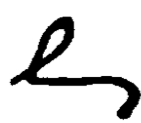
boys(source: Manual, “How to Write and Join the Characters”)
- full style:
-
- every style:

br(source: Manual, “How to Join”, B)
- every style:
-
- full style:

brackets(source: Manual, “Specimen of Fully-Written Style”)
- full style:
-
- full style:

bray(source: Manual, “How to Write and Join the Characters”)
- full style:
-
-
full style:

braed(source: Manual) -
full style:

braed(source: Manual, “From Macaulay’s History”)
-
-
- full style:

brethren(source: Manual, “St John”)
- full style:
-
- full style:

brevity(source: Manual, “Specimen of Fully-Written Style”)
- full style:
-
- full style:

bride(source: Manual, “St John”)
- full style:
-
- full style:

bridegroom(source: Manual, “St John”)
- full style:
-
- full style:

brief(source: Manual, “Specimen of Fully-Written Style”)
- full style:
-
- full style:

brim(source: Manual, “St John”)
- full style:
-
- ordinary style:

brot(source: Manual, “Abbreviate common endings”)
- ordinary style:
-
- every style:

bs(source: Manual, “How to Join”, B)
- every style:
-
- every style:

bt(source: Manual, “How to Join”, B)
- every style:
-
- ordinary style:

buildY(source: Manual, “St John”)
- ordinary style:
-
- ordinary style:

bt(source: Manual, “Abbreviations for Common Words”)
- ordinary style:
-
- every style:

bv(source: Manual, “How to Join”, B)
- every style:
-
-
abbreviated style:

^y(source: Supplement, “Examples of Abbreviations”) -
full style:

by(source: Manual, “Specimen of Fully-Written Style”) -
ordinary style:

by(source: Manual, “Specimen of the Ordinary Style”)
-
C
-
- every style:

c(source: Manual, “The Cursive Alphabet”)
- every style:
-
- full style:

cabby(source: Manual, “The Cursive Alphabet”)
- full style:
-
- ordinary style:

cald(source: Manual, “St John”)
- ordinary style:
- came
-
Note: Yes, Callendar wrote the
ma little too short here. -
abbreviated style:

cme(source: Supplement, “Examples of Abbreviations”)
-
-
- ordinary style:

cmps(source: Manual, “From Macaulay’s History”)
- ordinary style:
-
-
ordinary style:

ca(source: Manual, “Abbreviations for Common Words”) -
ordinary style:

ca(source: Manual, “From Macaulay’s History”)
-
-
- ordinary style:

cn(source: Manual)
- ordinary style:
-
-
ordinary style:

cab(source: Manual, “Abbreviations for Common Words”) -
ordinary style:

cab(source: Manual, “Specimen of the Ordinary Style”)
-
-
- full style:

cana(source: Manual, “St John”)
- full style:
-
- ordinary style:

cndles(source: Manual, “From Macaulay’s History”)
- ordinary style:
-
- ordinary style:

cnt(source: Manual, “Abbreviations for Common Words”)
- ordinary style:
-
- abbreviated style:

caut(source: Supplement, “Examples of Abbreviations”)
- abbreviated style:
-
- full style:

century(source: Manual, “From Macaulay’s History”)
- full style:
- Ch
-
Note: The combination “ch” is written and joined exactly like the longhand letter “o”.
-
every style:

ch(source: Manual, “How to Join”, C)
-
-
- ordinary style:

chair(source: Manual, “How to Join”, C)
- ordinary style:
-
-
ordinary style:

chnge(source: Manual, “Specimen of the Ordinary Style”) -
ordinary style:

chnge(source: Manual, “From Macaulay’s History”)
-
-
- ordinary style:

chngers(source: Manual, “St John”)
- ordinary style:
-
- abbreviated style:

ch_s(source: Supplement, “Examples of Abbreviations”)
- abbreviated style:
-
- full style:

character(source: Manual, “Specimen of the Ordinary Style”)
- full style:
-
- full style:

characters(source: Manual, “Specimen of the Ordinary Style”)
- full style:
-
- full style:

chat(source: Manual)
- full style:
-
- full style:

chaeper(source: Manual, “From Macaulay’s History”)
- full style:
-
- full style:

chief(source: Manual)
- full style:
-
- ordinary style:

chd(source: Manual, “Abbreviations for Common Words”)
- ordinary style:
-
- full style:

christ(source: Manual, “How to Join”, C)
- full style:
-
- abbreviated style:

chch(source: Supplement, “Examples of Abbreviations”)
- abbreviated style:
-
- abbreviated style:

cer(source: Supplement, “Examples of Abbreviations”)
- abbreviated style:
-
-
abbreviated style:

cerce(source: Supplement, “Examples of Abbreviations”) -
ordinary style:

circe(source: Manual, “The General Method”)
-
-
- full style:

city(source: Manual, “The Cursive Alphabet”)
- full style:
-
- every style:

ck(source: Manual, “How to Join”, C)
- every style:
-
- every style:

cl(source: Manual, “How to Join”, C)
- every style:
-
- ordinary style:

clas(source: Manual, “From Macaulay’s History”)
- ordinary style:
-
- full style:

clay(source: Manual, “Initial Capitals”)
- full style:
-
- full style:

clay(source: Manual)
- full style:
-
- full style:

claer(source: Manual, “From Macaulay’s History”)
- full style:
-
- full style:

clearness(source: Manual, “Specimen of Fully-Written Style”)
- full style:
-
- full style:

close(source: Manual, “How to Write and Join the Characters”)
- full style:
-
- ordinary style:

clothY(source: Manual, “From Macaulay’s History”)
- ordinary style:
-
- full style:

coals(source: Manual, “From Macaulay’s History”)
- full style:
-
- full style:

coats(source: Manual, “From Macaulay’s History”)
- full style:
-
- abbreviated style:

*(source: Supplement, “Examples of Abbreviations”)
- abbreviated style:
- come
-
Note: Note the common pattern of writing -ome as
mand -ame asmebetween “come”/”came” and “some”/ “same”. -
abbreviated style:

cm(source: Supplement, “Examples of Abbreviations”)
-
-
- ordinary style:

cms(source: Manual, “Specimen of the Ordinary Style”)
- ordinary style:
-
- abbreviated style:

*.nd(source: Supplement, “Examples of Abbreviations”)
- abbreviated style:
-
-
ordinary style:

comt(source: Manual, “Abbreviate common endings”) -
abbreviated style:

*.t(source: Supplement, “Examples of Abbreviations”)
-
-
- ordinary style:

cmmit(source: Manual, “St John”)
- ordinary style:
-
- ordinary style:

cmodetys(source: Manual, “From Macaulay’s History”)
- ordinary style:
-
-
abbreviated style:

*.n(source: Supplement, “Examples of Abbreviations”) -
ordinary style:

cmn(source: Manual, “Specimen of the Ordinary Style”) -
ordinary style:

cmn(source: Manual, “From Macaulay’s History”)
-
-
- ordinary style:

cmparativ_y(source: Manual, “Specimen of the Ordinary Style”)
- ordinary style:
-
- ordinary style:

cmplaent(source: Manual, “From Macaulay’s History”)
- ordinary style:
-
- abbreviated style:

*.pou(source: Supplement, “Examples of Abbreviations”)
- abbreviated style:
- comprehend
-
Note: FIXME: Right side of the
dgot trimmed off in the image. -
abbreviated style:

*^hend(source: Supplement, “Examples of Abbreviations”)
-
-
- abbreviated style:

*.cY(source: Supplement, “Examples of Abbreviations”)
- abbreviated style:
-
- ordinary style:

cnclusuns(source: Manual, “From Macaulay’s History”)
- ordinary style:
-
- ordinary style:

cndetun(source: Manual, “From Macaulay’s History”)
- ordinary style:
-
- ordinary style:

cnseqent_y(source: Manual, “Specimen of the Ordinary Style”)
- ordinary style:
-
- abbreviated style:

*.s^*(source: Supplement, “Examples of Abbreviations”)
- abbreviated style:
-
- abbreviated style:

*.sed.n(source: Supplement, “Examples of Abbreviations”)
- abbreviated style:
-
- ordinary style:

cnsnnts(source: Manual, “Specimen of the Ordinary Style”)
- ordinary style:
-
- full style:

constitute(source: Manual, “Specimen of Fully-Written Style”)
- full style:
-
- ordinary style:

cntaenY(source: Manual, “St John”)
- ordinary style:
-
- ordinary style:

cntinud(source: Manual, “St John”)
- ordinary style:
-
- full style:

contrasted(source: Manual, “Specimen of Fully-Written Style”)
- full style:
-
- ordinary style:

cnvencd(source: Manual, “Specimen of the Ordinary Style”)
- ordinary style:
-
- full style:

cords(source: Manual, “St John”)
- full style:
-
- full style:

correct(source: Manual, “Specimen of Fully-Written Style”)
- full style:
-
- ordinary style:

corect_y(source: Manual, “Specimen of the Ordinary Style”)
- ordinary style:
-
- full style:

cost(source: Manual, “From Macaulay’s History”)
- full style:
-
- ordinary style:

cost_y(source: Manual, “From Macaulay’s History”)
- ordinary style:
-
- ordinary style:

cd(source: Manual, “Abbreviations for Common Words”)
- ordinary style:
-
- abbreviated style:

couer(source: Supplement, “Examples of Abbreviations”)
- abbreviated style:
-
- ordinary style:

countrys(source: Manual, “From Macaulay’s History”)
- ordinary style:
-
- abbreviated style:

coury(source: Supplement, “Examples of Abbreviations”)
- abbreviated style:
-
- abbreviated style:

crs(source: Supplement, “Examples of Abbreviations”)
- abbreviated style:
-
- abbreviated style:

crt(source: Supplement, “Examples of Abbreviations”)
- abbreviated style:
-
- full style:

courts(source: Manual, “From Macaulay’s History”)
- full style:
-
- full style:

cows(source: Manual)
- full style:
-
- every style:

cr(source: Manual, “How to Join”, C)
- every style:
-
- full style:

cre:ate(source: Manual, “Diphthongs”)
- full style:
-
- full style:

criterien(source: Manual, “From Macaulay’s History”)
- full style:
-
- full style:

crow(source: Manual)
- full style:
-
- full style:

crutch(source: Manual, “How to Write and Join the Characters”)
- full style:
-
- every style:

ct(source: Manual, “How to Join”, C)
- every style:
-
-
full style:

Cursive(source: Manual, “Specimen of Fully-Written Style”) -
full style:

cursive(source: Manual, “Specimen of the Ordinary Style”)
-
-
- full style:
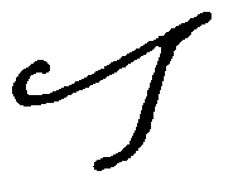
cusps(source: Manual, “How to Write and Join the Characters”)
- full style:
D
-
- every style:

d(source: Manual, “The Cursive Alphabet”)
- every style:
-
- example style:
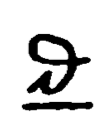
old English longhand letter d(source: Manual)
- example style:
-
- ordinary style:

day_ys(source: Manual, “Abbreviate common endings”)
- ordinary style:
-
- full style:

dawn(source: Manual, “How to Write and Join the Characters”)
- full style:
-
- full style:

days(source: Manual, “How to Write and Join the Characters”)
- full style:
-
- full style:

daze(source: Manual)
- full style:
-
- full style:

daed(source: Manual, “St John”)
- full style:
-
-
abbreviated style:

dr(source: Supplement, “Examples of Abbreviations”) -
full style:

daer(source: Manual, “From Macaulay’s History”)
-
-
- full style:

daerer(source: Manual, “From Macaulay’s History”)
- full style:
-
- ordinary style:

defenete(source: Manual, “Specimen of the Ordinary Style”)
- ordinary style:
-
- full style:

demagogues(source: Manual, “From Macaulay’s History”)
- full style:
-
- full style:

depth(source: Manual, “How to Write and Join the Characters”)
- full style:
-
- full style:

destroy(source: Manual, “St John”)
- full style:
-
- ordinary style:

detaels(source: Manual, “Specimen of the Ordinary Style”)
- ordinary style:
-
- full style:

de:a(source: Manual, “Diphthongs”)
- full style:
-
- every style:

dge(source: Manual, “How to Join”, D)
- every style:
-
- ordinary style:

disceples(source: Manual, “St John”)
- ordinary style:
-
-
ordinary style:

d:d(source: Manual, “From Macaulay’s History”) -
ordinary style:

d:d(source: Manual, “St John”)
-
-
-
abbreviated style:

def(source: Supplement, “Examples of Abbreviations”) -
ordinary style:

difce(source: Manual, “The General Method”)
-
-
-
abbreviated style:

def(source: Supplement, “Examples of Abbreviations”) -
ordinary style:

dift(source: Manual, “The General Method”)
-
-
- abbreviated style:

deft(source: Supplement, “Examples of Abbreviations”)
- abbreviated style:
-
- ordinary style:

defecultys(source: Manual, “Specimen of the Ordinary Style”)
- ordinary style:
-
- full style:

difficulty(source: Manual, “Specimen of Fully-Written Style”)
- full style:
-
- ordinary style:

descusd(source: Manual, “Specimen of the Ordinary Style”)
- ordinary style:
-
- ordinary style:

descusun(source: Manual, “From Macaulay’s History”)
- ordinary style:
-
- ordinary style:

destinctun(source: Manual, “Specimen of the Ordinary Style”)
- ordinary style:
-
- ordinary style:

destentuns(source: Manual, “Specimen of the Ordinary Style”)
- ordinary style:
-
- ordinary style:

destract(source: Manual, “Specimen of the Ordinary Style”)
- ordinary style:
-
- ordinary style:

destres(source: Manual, “From Macaulay’s History”)
- ordinary style:
-
- every style:

dj(source: Manual, “How to Join”, D)
- every style:
-
- every style:

dle(source: Manual, “How to Join”, D)
- every style:
-
-
ordinary style:

d(source: Manual, “Abbreviations for Common Words”) -
ordinary style:

d(source: Manual, “St John”)
-
-
- ordinary style:

ds(source: Manual, “Abbreviations for Common Words”)
- ordinary style:
-
- ordinary style:

dth(source: Manual, “St John”)
- ordinary style:
-
- ordinary style:

doublY(source: Manual, “Specimen of the Ordinary Style”)
- ordinary style:
-
- full style:

doves(source: Manual, “St John”)
- full style:
-
-
ordinary style:

dn(source: Manual, “Abbreviations for Common Words”) -
ordinary style:

dn(source: Manual, “St John”)
-
-
- every style:

dr(source: Manual, “How to Join”, D)
- every style:
-
- full style:

draw(source: Manual, “St John”)
- full style:
-
- full style:

dread(source: Manual, “How to Write and Join the Characters”)
- full style:
-
- full style:

drew(source: Manual, “St John”)
- full style:
-
- full style:

drove(source: Manual, “St John”)
- full style:
-
- full style:

drunk(source: Manual, “St John”)
- full style:
-
- full style:

dry(source: Manual)
- full style:
-
- ordinary style:

durY(source: Manual, “From Macaulay’s History”)
- ordinary style:
-
- ordinary style:

duty(source: Manual, “From Macaulay’s History”)
- ordinary style:
-
- every style:

dv(source: Manual, “How to Join”, D)
- every style:
-
- every style:

dw(source: Manual, “How to Join”, D)
- every style:
-
- full style:

dwell(source: Manual, “How to Write and Join the Characters”)
- full style:
E
-
- every style:

e(source: Manual, “The Cursive Alphabet”)
- every style:
-
- example style:

old English longhand letter E(source: Manual)
- example style:
-
- example style:

old English longhand letter e(source: Manual)
- example style:
- ea_both
-
Note: The
aeversion is used except afternm spy b(mnemonic: “up and over for before bynames”). An angle must always be made aftereabefore any one ofstd(cf. “seas”). -
every style:

ea ae(source: Manual)
-
-
- every style:

ea(source: Manual)
- every style:
-
- every style:

ae(source: Manual)
- every style:
-
-
abbreviated style:

ea(source: Supplement, “Examples of Abbreviations”) -
full style:

each(source: Manual, “Specimen of Fully-Written Style”)
-
-
- ordinary style:

ael_y(source: Manual, “Specimen of the Ordinary Style”)
- ordinary style:
-
- ordinary style:

easyst(source: Manual, “Let -Y stand unaltered”)
- ordinary style:
-
- ordinary style:

easy_y(source: Manual, “Abbreviate common endings”)
- ordinary style:
-
- full style:

aesy(source: Manual, “Specimen of the Ordinary Style”)
- full style:
-
- full style:

aet(source: Manual)
- full style:
-
- full style:

aeten(source: Manual, “St John”)
- full style:
-
-
every style:

e:a:u(source: Manual, “Dipththongs”) -
every style:

eau(source: Manual, “Dipththongs”)
-
-
- abbreviated style:

edor(source: Supplement, “Examples of Abbreviations”)
- abbreviated style:
-
- ordinary style:

educatun(source: Manual, “Specimen of the Ordinary Style”)
- ordinary style:
- EE
-
Note: The diphthong
eeis the exception to the “write doubled letters once, optionally with a dot beneath” rule. It is markedly steeper thanu.ushould stay about 30 degrees from the horizontal. -
every style:

ee(source: Manual, “Doubled Letters”)
-
-
-
every style:

ee(source: Manual) -
every style:

ee(source: Manual)
-
-
- full style:

effected(source: Manual, “Specimen of Fully-Written Style”)
- full style:
-
- full style:

ei(source: Manual)
- full style:
-
- ordinary style:

elapsd(source: Manual, “From Macaulay’s History”)
- ordinary style:
-
- ordinary style:

elimenatd(source: Manual, “Specimen of the Ordinary Style”)
- ordinary style:
-
- abbreviated style:

el(source: Supplement, “Examples of Abbreviations”)
- abbreviated style:
-
-
ordinary style:

employd(source: Manual, “Specimen of the Ordinary Style”) -
ordinary style:

employd(source: Manual, “From Macaulay’s History”)
-
-
- full style:

employment(source: Manual, “Specimen of Fully-Written Style”)
- full style:
-
- full style:

enable(source: Manual, “Specimen of Fully-Written Style”)
- full style:
-
- example style:

old English curxive written End(source: Manual)
- example style:
-
- abbreviated style:

end^r(source: Supplement, “Examples of Abbreviations”)
- abbreviated style:
-
- full style:

ends(source: Manual, “Specimen of Fully-Written Style”)
- full style:
-
- ordinary style:

englnd(source: Manual, “From Macaulay’s History”)
- ordinary style:
-
- full style:

English(source: Manual, “Specimen of Fully-Written Style”)
- full style:
-
- ordinary style:

entre_y(source: Manual, “From Macaulay’s History”)
- ordinary style:
-
- ordinary style:

eror(source: Manual, “From Macaulay’s History”)
- ordinary style:
-
-
ordinary style:

esp_y(source: Manual, “The General Method”) -
full style:

especially(source: Manual, “Specimen of Fully-Written Style”) -
ordinary style:

especealy(source: Manual, “From Macaulay’s History”)
-
-
- full style:
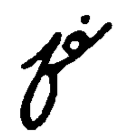
esqire(source: Manual)
- full style:
-
- ordinary style:

estimatd(source: Manual, “From Macaulay’s History”)
- ordinary style:
-
- full style:

etc(source: Manual, “Specimen of Fully-Written Style”)
- full style:
-
- every style:

eu(source: Manual)
- every style:
-
-
abbreviated style:

een(source: Supplement, “Examples of Abbreviations”) -
full style:

even(source: Manual, “Specimen of Fully-Written Style”) -
full style:

even(source: Manual, “Specimen of the Ordinary Style”) -
full style:

even(source: Manual, “From Macaulay’s History”)
-
- evening
-
Note: Do not confuse with unraised
nYfor “nothing”. -
abbreviated style:

^nY(source: Supplement, “Examples of Abbreviations”)
-
-
- abbreviated style:

^nt(source: Supplement, “Examples of Abbreviations”)
- abbreviated style:
-
- ordinary style:

^r(source: Manual, “Abbreviations for Common Words”)
- ordinary style:
-
-
abbreviated style:

^ry(source: Supplement, “Examples of Abbreviations”) -
full style:

every(source: Manual, “Specimen of Fully-Written Style”) -
full style:

every(source: Manual, “Specimen of the Ordinary Style”)
-
-
- abbreviated style:

^dent(source: Supplement, “Examples of Abbreviations”)
- abbreviated style:
-
- abbreviated style:

^el(source: Supplement, “Examples of Abbreviations”)
- abbreviated style:
-
- every style:

ew(source: Manual)
- every style:
-
- ordinary style:

xact(source: Manual, “From Macaulay’s History”)
- ordinary style:
-
- ordinary style:

xmple(source: Manual, “Specimen of the Ordinary Style”)
- ordinary style:
-
- full style:

examples(source: Manual, “Specimen of Fully-Written Style”)
- full style:
-
- abbreviated style:

x(source: Supplement, “Examples of Abbreviations”)
- abbreviated style:
-
- ordinary style:

xceptun(source: Manual, “Specimen of the Ordinary Style”)
- ordinary style:
-
- abbreviated style:

xor(source: Supplement, “Examples of Abbreviations”)
- abbreviated style:
-
- abbreviated style:

xe(source: Supplement, “Examples of Abbreviations”)
- abbreviated style:
-
- full style:
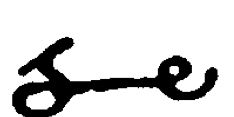
exhort(source: Manual, “How to Write and Join the Characters”)
- full style:
-
- full style:

exit(source: Manual, “The Cursive Alphabet”)
- full style:
-
- full style:

expense(source: Manual, “How to Write and Join the Characters”)
- full style:
-
- ordinary style:

xpereence(source: Manual, “Specimen of the Ordinary Style”)
- ordinary style:
-
- ordinary style:

explaend(source: Manual, “Specimen of the Ordinary Style”)
- ordinary style:
-
- full style:
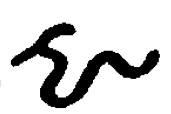
extent(source: Manual, “How to Write and Join the Characters”)
- full style:
-
-
abbreviated style:

xtry(source: Supplement, “Examples of Abbreviations”) -
ordinary style:

xtry(source: Manual, “The General Method”)
-
-
- full style:

eyes(source: Manual, “The Cursive Alphabet”)
- full style:
F
-
- every style:

f(source: Manual, “The Cursive Alphabet”)
- every style:
-
- example style:

old English longhand letter f(source: Manual)
- example style:
-
- full style:

fabrics(source: Manual, “From Macaulay’s History”)
- full style:
-
- full style:

fact(source: Manual, “Specimen of the Ordinary Style”)
- full style:
-
- ordinary style:

fmelear(source: Manual, “Specimen of the Ordinary Style”)
- ordinary style:
-
- ordinary style:

fmilys(source: Manual, “From Macaulay’s History”)
- ordinary style:
-
- ordinary style:

fahrs(source: Manual, “St John”)
- ordinary style:
-
- abbreviated style:

fa^r(source: Supplement, “Examples of Abbreviations”)
- abbreviated style:
-
- every style:

fd(source: Manual)
- every style:
-
- ordinary style:
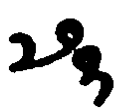
fear lsns(source: Manual, “Abbreviate common endings”)
- ordinary style:
-
- full style:

faest(source: Manual, “St John”)
- full style:
-
- full style:

fed(source: Manual, “The Cursive Alphabet”)
- full style:
-
-
full style:

few(source: Manual, “Specimen of Fully-Written Style”) -
full style:

few(source: Manual, “Specimen of the Ordinary Style”)
-
-
- full style:

fi:asco(source: Manual, “Diphthongs”)
- full style:
-
- full style:

fiddle(source: Manual, “How to Write and Join the Characters”)
- full style:
-
- full style:

fierce(source: Manual)
- full style:
-
- ordinary style:

fefty(source: Manual, “From Macaulay’s History”)
- ordinary style:
-
- full style:

figure(source: Manual, “Specimen of Fully-Written Style”)
- full style:
-
- ordinary style:

fil(source: Manual, “St John”)
- ordinary style:
-
- ordinary style:

feld(source: Manual, “St John”)
- ordinary style:
-
- ordinary style:

fnd(source: Manual, “Specimen of the Ordinary Style”)
- ordinary style:
-
- full style:

finding(source: Manual, “Specimen of Fully-Written Style”)
- full style:
-
- full style:

firkins(source: Manual, “St John”)
- full style:
-
- full style:
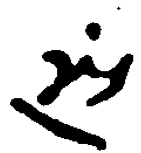
fitz(source: Manual, “How to Join”, Z)
- full style:
-
- every style:

fl(source: Manual)
- every style:
-
- full style:

flow(source: Manual)
- full style:
-
- ordinary style:

flowY(source: Manual, “Specimen of the Ordinary Style”)
- ordinary style:
-
- full style:

follow(source: Manual, “Specimen of Fully-Written Style”)
- full style:
-
- ordinary style:

folowY(source: Manual, “Specimen of the Ordinary Style”)
- ordinary style:
-
-
ordinary style:

f(source: Manual, “Abbreviations for Common Words”) -
full style:

for(source: Manual, “Specimen of Fully-Written Style”) -
ordinary style:

f(source: Manual, “Specimen of the Ordinary Style”) -
ordinary style:

f(source: Manual, “From Macaulay’s History”)
-
-
-
abbreviated style:

f_n(source: Supplement, “Examples of Abbreviations”) -
full style:

foreign(source: Manual, “Specimen of Fully-Written Style”)
-
-
- abbreviated style:

fg^*(source: Supplement, “Examples of Abbreviations”)
- abbreviated style:
-
- ordinary style:

fm(source: Manual, “Abbreviations for Common Words”)
- ordinary style:
-
- ordinary style:

fms(source: Manual, “Specimen of the Ordinary Style”)
- ordinary style:
-
-
abbreviated style:

fth(source: Supplement, “Examples of Abbreviations”) -
full style:

forth(source: Manual, “From Macaulay’s History”) -
full style:

forth(source: Manual, “St John”)
-
-
- full style:

forty(source: Manual, “St John”)
- full style:
-
- abbreviated style:

fard(source: Supplement, “Examples of Abbreviations”)
- abbreviated style:
-
-
abbreviated style:

fou(source: Supplement, “Examples of Abbreviations”) -
full style:

found(source: Manual, “Specimen of the Ordinary Style”) -
full style:

found(source: Manual, “From Macaulay’s History”) -
full style:

found(source: Manual, “St John”)
-
-
- every style:

fr(source: Manual)
- every style:
-
- ordinary style:

fd(source: Manual, “Abbreviations for Common Words”)
- ordinary style:
-
- every style:

fro(source: Manual)
- every style:
-
-
abbreviated style:

fr(source: Supplement, “Examples of Abbreviations”) -
ordinary style:

fr(source: Manual, “Specimen of the Ordinary Style”) -
ordinary style:

fr(source: Manual, “From Macaulay’s History”)
-
-
- every style:

fs(source: Manual)
- every style:
-
- every style:

ft(source: Manual)
- every style:
-
- full style:

fu:el(source: Manual, “Diphthongs”)
- full style:
-
-
full style:

full(source: Manual, “Specimen of Fully-Written Style”) -
ordinary style:

fl(source: Manual, “Specimen of the Ordinary Style”)
-
-
- full style:

fully(source: Manual, “Specimen of Fully-Written Style”)
- full style:
-
- ordinary style:

fundmtal(source: Manual, “Specimen of the Ordinary Style”)
- ordinary style:
-
- full style:

further(source: Manual, “Specimen of Fully-Written Style”)
- full style:
G
-
- every style:

g(source: Manual, “The Cursive Alphabet”)
- every style:
-
- ordinary style:

galelee(source: Manual, “St John”)
- ordinary style:
-
- ordinary style:

garet(source: Manual, “From Macaulay’s History”)
- ordinary style:
-
-
abbreviated style:

gen(source: Supplement, “Examples of Abbreviations”) -
full style:

general(source: Manual, “Specimen of the Ordinary Style”)
-
-
- full style:

generaly(source: Manual, “From Macaulay’s History”)
- full style:
-
- full style:

get(source: Manual, “The Cursive Alphabet”)
- full style:
-
- every style:

gh(source: Manual)
- every style:
-
-
abbreviated style:

g^n(source: Supplement, “Examples of Abbreviations”) -
full style:

given(source: Manual, “Specimen of Fully-Written Style”)
-
-
- abbreviated style:

g^s(source: Supplement, “Examples of Abbreviations”)
- abbreviated style:
-
- every style:

gl(source: Manual)
- every style:
-
- full style:
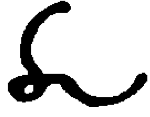
glad(source: Manual)
- full style:
-
-
full style:

glory(source: Manual, “How to Write and Join the Characters”) -
full style:

glory(source: Manual, “St John”)
-
-
- every style:

gn(source: Manual)
- every style:
-
-
ordinary style:

gd(source: Manual, “Abbreviations for Common Words”) -
ordinary style:

gd(source: Manual, “St John”)
-
-
- abbreviated style:

gd.es(source: Supplement, “Examples of Abbreviations”)
- abbreviated style:
-
- full style:

governor(source: Manual, “St John”)
- full style:
-
- every style:

gr(source: Manual)
- every style:
-
- full style:
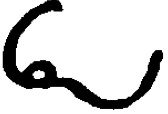
grade(source: Manual)
- full style:
-
-
ordinary style:

grt(source: Manual, “Abbreviations for Common Words”) -
ordinary style:

grt(source: Manual, “Specimen of the Ordinary Style”) -
ordinary style:

grt(source: Manual, “From Macaulay’s History”)
-
-
-
ordinary style:

grter(source: Manual, “Specimen of the Ordinary Style”) -
ordinary style:

grter(source: Manual, “From Macaulay’s History”)
-
-
- full style:

greatest(source: Manual, “Specimen of Fully-Written Style”)
- full style:
-
- full style:

groom(source: Manual, “St John”)
- full style:
-
- full style:

guard(source: Manual, “How to Write and Join the Characters”)
- full style:
-
- full style:

guide(source: Manual, “Specimen of the Ordinary Style”)
- full style:
H
-
- every style:

h(source: Manual, “The Cursive Alphabet”)
- every style:
-
- every style:

ha(source: Manual)
- every style:
-
-
ordinary style:

hd(source: Manual, “Abbreviations for Common Words”) -
ordinary style:

hd(source: Manual, “Specimen of the Ordinary Style”) -
ordinary style:

hd(source: Manual, “From Macaulay’s History”)
-
-
-
full style:

half(source: Manual, “How to Write and Join the Characters”) -
abbreviated style:

haf(source: Supplement, “Examples of Abbreviations”) -
full style:

half(source: Manual, “Specimen of the Ordinary Style”)
-
-
- ordinary style:

halfY(source: Manual, “Specimen of the Ordinary Style”)
- ordinary style:
-
-
abbreviated style:

nd(source: Supplement, “Examples of Abbreviations”) -
ordinary style:

hnd(source: Manual, “Specimen of the Ordinary Style”)
-
-
- full style:

happen(source: Manual, “Specimen of Fully-Written Style”)
- full style:
-
- ordinary style:

happyr(source: Manual, “Let -Y stand unaltered”)
- ordinary style:
-
- ordinary style:

hapyns(source: Manual, “Abbreviate common endings”)
- ordinary style:
-
- ordinary style:

harmls(source: Manual, “Specimen of the Ordinary Style”)
- ordinary style:
-
-
full style:

has(source: Manual, “Specimen of the Ordinary Style”) -
full style:

has(source: Manual, “From Macaulay’s History”)
-
-
- full style:

hast(source: Manual, “St John”)
- full style:
-
- full style:

hat(source: Manual)
- full style:
-
- full style:

hath(source: Manual, “St John”)
- full style:
-
-
ordinary style:

ha(source: Manual, “Abbreviations for Common Words”) -
full style:

have(source: Manual, “Specimen of Fully-Written Style”) -
ordinary style:

ha(source: Manual, “Specimen of the Ordinary Style”)
-
-
- full style:
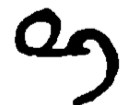
hawk(source: Manual, “How to Write and Join the Characters”)
- full style:
- hay
-
Note: This demonstrates the default, “over-curve” version of
ay. -
every style:

hay(source: Manual, “How to Join”, A)
-
-
-
full style:

he(source: Manual, “Specimen of Fully-Written Style”) -
full style:

he(source: Manual, “Specimen of the Ordinary Style”)
-
-
- abbreviated style:

hd(source: Supplement, “Examples of Abbreviations”)
- abbreviated style:
-
- full style:

held(source: Manual)
- full style:
-
-
full style:

help(source: Manual, “How to Write and Join the Characters”) -
abbreviated style:

lp(source: Supplement, “Examples of Abbreviations”)
-
-
- full style:

hence(source: Manual, “St John”)
- full style:
-
- full style:

her(source: Manual, “St John”)
- full style:
-
- full style:

herd(source: Manual)
- full style:
-
- full style:

here(source: Manual, “Specimen of Fully-Written Style”)
- full style:
-
- full style:

high(source: Manual, “How to Write and Join the Characters”)
- full style:
- higher
-
Note: According to the manual, standalone r should be just a circle.
-
ordinary style:

he_r(source: Manual, “From Macaulay’s History”)
-
-
- ordinary style:

hi_st(source: Manual, “From Macaulay’s History”)
- ordinary style:
-
-
abbreviated style:

em(source: Supplement, “Examples of Abbreviations”) -
ordinary style:

hem(source: Manual, “St John”)
-
-
- ordinary style:

hemef(source: Manual, “St John”)
- ordinary style:
-
-
abbreviated style:

es(source: Supplement, “Examples of Abbreviations”) -
full style:

his(source: Manual, “Specimen of Fully-Written Style”) -
full style:

his(source: Manual, “St John”)
-
-
- ordinary style:

hestory(source: Manual, “From Macaulay’s History”)
- ordinary style:
-
- full style:

hit(source: Manual, “The Cursive Alphabet”)
- full style:
-
- full style:

hooks(source: Manual, “Specimen of the Ordinary Style”)
- full style:
-
- full style:

hour(source: Manual, “St John”)
- full style:
-
-
full style:

house(source: Manual, “From Macaulay’s History”) -
full style:

house(source: Manual, “St John”)
-
-
- full style:

hundreds(source: Manual, “From Macaulay’s History”)
- full style:
-
- full style:

hut(source: Manual, “From Macaulay’s History”)
- full style:
I
-
-
every style:

i(source: Manual, “The Cursive Alphabet”) -
ordinary style:

e(source: Manual, “Specimen of the Ordinary Style”)
-
-
- ordinary style:

emnt(source: Manual, “Ordinary Style”, Phrases)
- ordinary style:
-
- ordinary style:

ehahd(source: Manual, “Ordinary Style”, Phrases)
- ordinary style:
-
- ordinary style:

eshebvery(source: Manual, “Ordinary Style”, Phrases)
- ordinary style:
-
- full style:

ia ai(source: Manual)
- full style:
-
- full style:

ie(source: Manual)
- full style:
- if
-
Note: This demonstrates how to join
fafter vowels: smoothly, without an angle. -
full style:

if(source: Manual) -
full style:

if(source: Manual, “Specimen of Fully-Written Style”)
-
- if_angled
-
Note: This demonstrates how you should not join
fafter a vowel. You do not want that awkward corner; smooth it out! -
ordinary style:

ef(source: Manual)
-
-
- full style:

illustrated(source: Manual, “Specimen of Fully-Written Style”)
- full style:
-
- ordinary style:

immagend(source: Manual, “Specimen of the Ordinary Style”)
- ordinary style:
-
- full style:
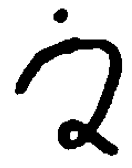
imply(source: Manual, “How to Write and Join the Characters”)
- full style:
-
- abbreviated style:

emp(source: Supplement, “Examples of Abbreviations”)
- abbreviated style:
-
-
abbreviated style:

emp(source: Supplement, “Examples of Abbreviations”) -
ordinary style:

emportnt(source: Manual, “From Macaulay’s History”)
-
-
- full style:

impossible(source: Manual, “Specimen of Fully-Written Style”)
- full style:
-
-
full style:

in(source: Manual, “Specimen of Fully-Written Style”) -
ordinary style:

en(source: Manual, “Specimen of the Ordinary Style”)
-
- inch
-
Note: The abbreviated style tucks the
chinto the curve of then. -
abbreviated style:

ench(source: Supplement, “Examples of Abbreviations”)
-
-
- full style:

inches(source: Manual, “How to Write and Join the Characters”)
- full style:
-
-
full style:

increase(source: Manual, “Specimen of Fully-Written Style”) -
ordinary style:

encraese(source: Manual, “From Macaulay’s History”)
-
-
- full style:

India(source: Manual, “How to Write and Join the Characters”)
- full style:
-
- abbreviated style:

endual(source: Supplement, “Examples of Abbreviations”)
- abbreviated style:
-
- ordinary style:

endustry(source: Manual, “From Macaulay’s History”)
- ordinary style:
-
-
full style:

infer(source: Manual, “How to Write and Join the Characters”) -
ordinary style:

enfer(source: Manual, “From Macaulay’s History”)
-
-
- ordinary style:

enfmatun(source: Manual, “From Macaulay’s History”)
- ordinary style:
-
- ordinary style:

Y(source: Manual)
- ordinary style:
-
- ordinary style:

Y(source: Manual)
- ordinary style:
-
- full style:

injury(source: Manual, “How to Write and Join the Characters”)
- full style:
-
- ordinary style:

enmates(source: Manual, “From Macaulay’s History”)
- ordinary style:
-
- full style:

inqest(source: Manual, “How to Write and Join the Characters”)
- full style:
-
- full style:

inspect(source: Manual, “How to Write and Join the Characters”)
- full style:
-
- ordinary style:

enstaed(source: Manual, “Specimen of the Ordinary Style”)
- ordinary style:
-
- abbreviated style:

ent(source: Supplement, “Examples of Abbreviations”)
- abbreviated style:
-
- ordinary style:

ent(source: Manual, “Abbreviations for Common Words”)
- ordinary style:
-
- ordinary style:

entroduce(source: Manual, “Specimen of the Ordinary Style”)
- ordinary style:
-
- ordinary style:

entroductun(source: Manual, “Specimen of the Ordinary Style”)
- ordinary style:
-
- oseinary style:

entroductory(source: Manual, “Specimen of the Ordinary Style”)
- oseinary style:
-
- full style:
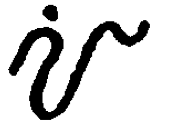
invent(source: Manual, “How to Write and Join the Characters”)
- full style:
-
-
full style:

is(source: Manual, “Specimen of Fully-Written Style”) -
ordinary style:

es(source: Manual, “Specimen of the Ordinary Style”)
-
-
- full style:

isra:el(source: Manual)
- full style:
-
-
full style:

it(source: Manual, “Specimen of Fully-Written Style”) -
ordinary style:

et(source: Manual, “Specimen of the Ordinary Style”)
-
-
- ordinary style:

ets(source: Manual, “Specimen of the Ordinary Style”)
- ordinary style:
-
- ordinary style:

em(source: Manual, “Abbreviations for Common Words”)
- ordinary style:
J
-
- every style:

j(source: Manual, “The Cursive Alphabet”)
- every style:
-
- every style:

jack(source: Manual, “Initial Capitals”)
- every style:
-
- full style:

jerusalem(source: Manual, “St John”)
- full style:
-
- full style:

jesus(source: Manual, “St John”)
- full style:
-
- full style:

jews(source: Manual, “St John”)
- full style:
-
- ordinary style:

joind(source: Manual, “Specimen of the Ordinary Style”)
- ordinary style:
- joining
-
Note: Callendar actually wrote
jo:innY -
ordinary style:

joinY(source: Manual, “Specimen of the Ordinary Style”)
-
-
-
full style:

judge(source: Manual, “How to Write and Join the Characters”) -
abbreviated style:

ju_*(source: Supplement, “Examples of Abbreviations”)
-
-
- full style:

jug(source: Manual, “The Cursive Alphabet”)
- full style:
-
-
abbreviated style:

j(source: Supplement, “Examples of Abbreviations”) -
full style:

just(source: Manual, “Specimen of Fully-Written Style”)
-
-
- abbreviated style:

jce(source: Supplement, “Examples of Abbreviations”)
- abbreviated style:
K
-
- every style:

k(source: Manual, “The Cursive Alphabet”)
- every style:
-
- full style:

kapernaum(source: Manual, “St John”)
- full style:
-
- full style:

keeper(source: Manual, “From Macaulay’s History”)
- full style:
-
- full style:

kept(source: Manual, “St John”)
- full style:
-
- full style:

key(source: Manual, “Specimen of Fully-Written Style”)
- full style:
-
-
ordinary style:

king(source: Manual, “Abbreviate common endings”) -
abbreviated style:

k(source: Supplement, “Examples of Abbreviations”)
-
-
- abbreviated style:

km(source: Supplement, “Examples of Abbreviations”)
- abbreviated style:
-
-
ordinary style:
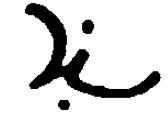
kisd(source: Manual, “Abbreviate common endings”) -
ordinary style:

kissd(source: Manual)
-
-
-
full style:

knew(source: Manual, “From Macaulay’s History”) -
full style:

knew(source: Manual, “St John”)
-
-
-
full style:

know(source: Manual, “The Cursive Alphabet”) -
abbreviated style:

kn(source: Supplement, “Examples of Abbreviations”)
-
-
- abbreviated style:

kn_*(source: Supplement, “Examples of Abbreviations”)
- abbreviated style:
-
- abbreviated style:

knn(source: Supplement, “Examples of Abbreviations”)
- abbreviated style:
L
-
- full style:

l(source: Manual, “The Cursive Alphabet”)
- full style:
-
- every style:

l.s.w.r(source: Manual, “Initial Capitals”)
- every style:
-
- every style:

full(source: Manual)
- every style:
-
- every style:

l(source: Manual)
- every style:
-
- full style:

labour(source: Manual, “From Macaulay’s History”)
- full style:
-
- abbreviated style:

ly(source: Supplement, “Examples of Abbreviations”)
- abbreviated style:
-
- abbreviated style:

ln_*(source: Supplement, “Examples of Abbreviations”)
- abbreviated style:
-
- abbreviated style:

la_*(source: Supplement, “Examples of Abbreviations”)
- abbreviated style:
-
- abbreviated style:

la_st(source: Supplement, “Examples of Abbreviations”)
- abbreviated style:
-
- full style:

last(source: Manual, “From Macaulay’s History”)
- full style:
-
- full style:

laws(source: Manual)
- full style:
-
- full style:

law.suit(source: Manual, “Dividing a Word”)
- full style:
-
-
full style:

learn(source: Manual, “How to Write and Join the Characters”) -
full style:

laern(source: Manual, “Specimen of the Ordinary Style”)
-
-
- ordinary style:

laernY(source: Manual, “Specimen of the Ordinary Style”)
- ordinary style:
-
-
full style:

left(source: Manual, “The Cursive Alphabet”) -
full style:

left(source: Manual, “Specimen of Fully-Written Style”)
-
-
- full style:

le:o(source: Manual, “Diphthongs”)
- full style:
-
- ordinary style:

les(source: Manual, “From Macaulay’s History”)
- ordinary style:
-
-
abbreviated style:

ler(source: Supplement, “Examples of Abbreviations”) -
full style:

letter(source: Manual, “Specimen of Fully-Written Style”) -
ordinary style:

leter(source: Manual, “Specimen of the Ordinary Style”)
-
-
- every style:

lf(source: Manual)
- every style:
- light
-
Note: In Ordinary, the
eis included so that the direction can show it is anland not anr. -
ordinary style:

le_t(source: Manual, “Abbreviate common endings”)
-
-
- full style:

like(source: Manual, “The Cursive Alphabet”)
- full style:
-
- full style:
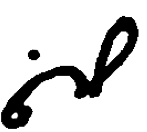
limb(source: Manual, “How to Write and Join the Characters”)
- full style:
-
-
full style:

line(source: Manual, “Specimen of Fully-Written Style”) -
ordinary style:

lene(source: Manual, “From Macaulay’s History”)
-
-
- full style:

lineal(source: Manual, “Specimen of the Ordinary Style”)
- full style:
-
- full style:

litre(source: Manual)
- full style:
-
-
abbreviated style:

lele(source: Supplement, “Examples of Abbreviations”) -
full style:

little(source: Manual) -
ordinary style:

letle(source: Manual, “Specimen of the Ordinary Style”)
-
-
- ordinary style:

levd(source: Manual, “From Macaulay’s History”)
- ordinary style:
-
- every style:

lk(source: Manual)
- every style:
-
- ordinary style:

lng(source: Manual, “Specimen of the Ordinary Style”)
- ordinary style:
-
- ordinary style:

lng.hnd(source: Manual, “Specimen of the Ordinary Style”)
- ordinary style:
-
- ordinary style:

loms(source: Manual, “From Macaulay’s History”)
- ordinary style:
-
- full style:

loops(source: Manual, “Specimen of the Ordinary Style”)
- full style:
-
- abbreviated style:

ld(source: Supplement, “Examples of Abbreviations”)
- abbreviated style:
-
- full style:

loss(source: Manual, “Specimen of Fully-Written Style”)
- full style:
-
- every style:

lp(source: Manual)
- every style:
-
- every style:

lt(source: Manual)
- every style:
-
- full style:

luck(source: Manual, “The Cursive Alphabet”)
- full style:
-
- full style:

lucrative(source: Manual, “From Macaulay’s History”)
- full style:
-
- every style:

lv(source: Manual)
- every style:
M
-
- every style:

m(source: Manual, “The Cursive Alphabet”)
- every style:
-
- ordinary style:

machenery(source: Manual, “From Macaulay’s History”)
- ordinary style:
-
-
ordinary style:

mde(source: Manual, “Abbreviations for Common Words”) -
ordinary style:

mde(source: Manual, “Specimen of the Ordinary Style”)
-
-
- abbreviated style:

m_fy(source: Supplement, “Examples of Abbreviations”)
- abbreviated style:
-
-
ordinary style:

major^y(source: Manual, “Specimen of the Ordinary Style”) -
ordinary style:

major^y(source: Manual, “From Macaulay’s History”)
-
-
-
abbreviated style:

mk(source: Supplement, “Examples of Abbreviations”) -
ordinary style:

mke(source: Manual, “St John”)
-
- makes
-
Note: Note the “hook
s” used here. -
abbreviated style:

mks(source: Supplement, “Examples of Abbreviations”) -
full style:

makes(source: Manual, “Specimen of Fully-Written Style”)
-
-
-
ordinary style:

mn(source: Manual, “From Macaulay’s History”) -
ordinary style:

mn(source: Manual, “St John”)
-
-
- ordinary style:

man hd(source: Manual, “Abbreviate common endings”)
- ordinary style:
-
- ordinary style:

mnifestd(source: Manual, “St John”)
- ordinary style:
-
- ordinary style:

mner(source: Manual, “St John”)
- ordinary style:
-
- ordinary style:

mnual(source: Manual, “Specimen of the Ordinary Style”)
- ordinary style:
-
-
ordinary style:

mny(source: Manual, “Specimen of the Ordinary Style”) -
ordinary style:

mny(source: Manual, “St John”)
-
-
- ordinary style:

maraige(source: Manual, “St John”)
- ordinary style:
-
- full style:

matter(source: Manual, “Specimen of Fully-Written Style”)
- full style:
-
- ordinary style:

maters(source: Manual, “Specimen of the Ordinary Style”)
- ordinary style:
-
- full style:

may(source: Manual, “Specimen of Fully-Written Style”)
- full style:
-
-
abbreviated style:

M(source: Supplement, “Examples of Abbreviations”) -
full style:

mb(source: Manual)
-
-
- ordinary style:

me(source: Manual, “Specimen of the Ordinary Style”)
- ordinary style:
-
- full style:

meagre(source: Manual, “From Macaulay’s History”)
- full style:
-
- full style:

means(source: Manual, “St John”)
- full style:
-
- full style:

meat(source: Manual, “From Macaulay’s History”)
- full style:
-
- ordinary style:

mechnec(source: Manual, “From Macaulay’s History”)
- ordinary style:
-
- full style:

melt(source: Manual, “The Cursive Alphabet”)
- full style:
-
- abbreviated style:

Mr(source: Supplement, “Examples of Abbreviations”)
- abbreviated style:
-
- full style:

men(source: Manual, “St John”)
- full style:
-
- ordinary style:

merchndise(source: Manual, “St John”)
- ordinary style:
-
- ordinary style:

method(source: Manual, “Specimen of the Ordinary Style”)
- ordinary style:
-
- full style:

methods(source: Manual, “Specimen of Fully-Written Style”)
- full style:
-
- ordinary style:

mt(source: Manual, “Abbreviations for Common Words”)
- ordinary style:
-
- full style:

mine(source: Manual, “St John”)
- full style:
-
- ordinary style:

menes(source: Manual, “From Macaulay’s History”)
- ordinary style:
-
- full style:

minster(source: Manual)
- full style:
-
- full style:

minver(source: Manual)
- full style:
-
- ordinary style:

meracles(source: Manual, “St John”)
- ordinary style:
-
- abbreviated style:

ms(source: Supplement, “Examples of Abbreviations”)
- abbreviated style:
-
- ordinary style:

mesery(source: Manual, “From Macaulay’s History”)
- ordinary style:
-
- abbreviated style:

mst_*(source: Supplement, “Examples of Abbreviations”)
- abbreviated style:
-
- full style:

modern(source: Manual, “From Macaulay’s History”)
- full style:
-
- ordinary style:

m:mt(source: Manual, “From Macaulay’s History”)
- ordinary style:
-
-
ordinary style:

mney(source: Manual, “From Macaulay’s History”) -
ordinary style:

mney(source: Manual, “St John”)
-
-
- abbreviated style:

mth(source: Supplement, “Examples of Abbreviations”)
- abbreviated style:
-
-
ordinary style:

mo(source: Manual, “Abbreviations for Common Words”) -
ordinary style:

mo(source: Manual, “From Macaulay’s History”)
-
-
- abbreviated style:

mY(source: Supplement, “Examples of Abbreviations”)
- abbreviated style:
-
- abbreviated style:

mt_*(source: Supplement, “Examples of Abbreviations”)
- abbreviated style:
-
-
ordinary style:

mst(source: Manual, “Abbreviations for Common Words”) -
ordinary style:

mst(source: Manual, “Specimen of the Ordinary Style”) -
ordinary style:

mst(source: Manual, “From Macaulay’s History”)
-
-
- ordinary style:

mohr(source: Manual, “St John”)
- ordinary style:
-
-
abbreviated style:

mp(source: Supplement, “Examples of Abbreviations”) -
every style:

mp(source: Manual)
-
-
- every style:

ms(source: Manual)
- every style:
- much
-
Note: The abbreviated style tucks the
chinto the curve of them. -
abbreviated style:

mch(source: Supplement, “Examples of Abbreviations”) -
full style:

much(source: Manual, “Specimen of the Ordinary Style”) -
full style:

much(source: Manual, “From Macaulay’s History”)
-
-
- abbreviated style:

mchmo(source: Supplement, “Examples of Abbreviations”)
- abbreviated style:
-
- abbreviated style:

mst(source: Supplement, “Examples of Abbreviations”)
- abbreviated style:
N
-
- every style:

n(source: Manual, “The Cursive Alphabet”)
- every style:
-
- ordinary style:

nme(source: Manual, “St John”)
- ordinary style:
-
- ordinary style:

nmd(source: Manual, “St John”)
- ordinary style:
-
- full style:

names(source: Manual, “Specimen of Fully-Written Style”)
- full style:
-
-
abbreviated style:

n.n(source: Supplement, “Examples of Abbreviations”) -
ordinary style:

natun(source: Manual, “From Macaulay’s History”)
-
-
- full style:

natural(source: Manual, “Specimen of the Ordinary Style”)
- full style:
-
- every style:

nc(source: Manual)
- every style:
-
- every style:

nch(source: Manual)
- every style:
-
- every style:

nd(source: Manual)
- every style:
-
- abbreviated style:

nrst(source: Supplement, “Examples of Abbreviations”)
- abbreviated style:
-
- ordinary style:

near_y(source: Manual, “Abbreviate common endings”)
- ordinary style:
-
-
abbreviated style:

necy(source: Supplement, “Examples of Abbreviations”) -
ordinary style:

necesary(source: Manual, “Specimen of the Ordinary Style”)
-
-
- ordinary style:

need:d(source: Manual, “St John”)
- ordinary style:
-
- ordinary style:

need.ls(source: Manual, “Specimen of the Ordinary Style”)
- ordinary style:
-
- abbreviated style:

nebr(source: Supplement, “Examples of Abbreviations”)
- abbreviated style:
-
- abbreviated style:

n^ls(source: Supplement, “Examples of Abbreviations”)
- abbreviated style:
-
- full style:

new(source: Manual, “How to Write and Join the Characters”)
- full style:
-
- abbreviated style:

nst(source: Supplement, “Examples of Abbreviations”)
- abbreviated style:
-
- every style:

nf(source: Manual)
- every style:
-
- every style:

ng(source: Manual)
- every style:
-
- ordinary style:

nicetys(source: Manual, “Specimen of the Ordinary Style”)
- ordinary style:
-
- full style:

nicodemus(source: Manual, “St John”)
- full style:
-
-
ordinary style:

n_t(source: Manual, “Abbreviate common endings”) -
ordinary style:

n_t(source: Manual, “St John”)
-
-
- every style:
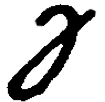
nj(source: Manual)
- every style:
-
- every style:

nk(source: Manual)
- every style:
-
- every style:

nl(source: Manual)
- every style:
-
- full style:

nor(source: Manual, “From Macaulay’s History”)
- full style:
-
- full style:

nor.wich(source: Manual, “From Macaulay’s History”)
- full style:
-
-
ordinary style:

nt(source: Manual, “Abbreviations for Common Words”) -
ordinary style:

nt(source: Manual, “From Macaulay’s History”)
-
- nothing
-
Note: The
nis on the line, not above it. Cp. “evening.” -
ordinary style:

nY(source: Manual, “Abbreviations for Common Words”) -
full style:

nothing(source: Manual, “Specimen of Fully-Written Style”) -
ordinary style:

nY(source: Manual, “From Macaulay’s History”)
-
-
- abbreviated style:

nthy(source: Supplement, “Examples of Abbreviations”)
- abbreviated style:
-
-
full style:

now(source: Manual, “From Macaulay’s History”) -
full style:

now(source: Manual, “St John”)
-
-
- every style:

nq(source: Manual)
- every style:
-
- every style:

ns(source: Manual)
- every style:
-
- every style:

nsp(source: Manual)
- every style:
-
- every style:

nt(source: Manual)
- every style:
-
- abbreviated style:

nuM(source: Supplement, “Examples of Abbreviations”)
- abbreviated style:
-
- ordinary style:

numerous(source: Manual, “From Macaulay’s History”)
- ordinary style:
-
- every style:

nv(source: Manual)
- every style:
O
-
- every style:

o(source: Manual, “The Cursive Alphabet”)
- every style:
-
- full style:

oak(source: Manual)
- full style:
-
- full style:

oar(source: Manual)
- full style:
-
- full style:

oats(source: Manual, “From Macaulay’s History”)
- full style:
-
- abbreviated style:

ob.t(source: Supplement, “Examples of Abbreviations”)
- abbreviated style:
-
- full style:

object(source: Manual, “How to Write and Join the Characters”)
- full style:
-
- ordinary style:

ocupd(source: Manual, “From Macaulay’s History”)
- ordinary style:
-
- full style:

occur(source: Manual, “Specimen of Fully-Written Style”)
- full style:
-
- full style:

od(source: Manual, “Doubled Letters”)
- full style:
-
-
ordinary style:

o(source: Manual, “Abbreviations for Common Words”) -
full style:

of(source: Manual, “Specimen of Fully-Written Style”) -
ordinary style:

o(source: Manual, “Specimen of the Ordinary Style”)
-
-
-
ordinary style:

oe(source: Manual, “Abbreviations for Common Words”) -
ordinary style:

oe(source: Manual, “Specimen of the Ordinary Style”)
-
-
-
full style:

often(source: Manual, “Specimen of Fully-Written Style”) -
full style:

often(source: Manual, “From Macaulay’s History”)
-
-
- full style:

oi(source: Manual)
- full style:
-
- full style:

old(source: Manual, “From Macaulay’s History”)
- full style:
-
-
ordinary style:

n(source: Manual, “Abbreviations for Common Words”) -
full style:

on(source: Manual, “Specimen of Fully-Written Style”) -
ordinary style:

n(source: Manual, “Specimen of the Ordinary Style”)
-
-
- ordinary style:

nce(source: Manual, “Abbreviations for Common Words”)
- ordinary style:
-
-
ordinary style:

ne(source: Manual, “Abbreviations for Common Words”) -
full style:

one(source: Manual, “Specimen of Fully-Written Style”)
-
-
-
ordinary style:

n_y(source: Manual, “Abbreviations for Common Words”) -
ordinary style:

n_y(source: Manual, “Specimen of the Ordinary Style”)
-
-
- abbreviated style:

op^y(source: Supplement, “Examples of Abbreviations”)
- abbreviated style:
-
- full style:

opposite(source: Manual, “Specimen of Fully-Written Style”)
- full style:
-
- full style:

optician(source: Manual)
- full style:
-
-
full style:

or(source: Manual) -
full style:

or(source: Manual, “Specimen of the Ordinary Style”)
-
-
- full style:

order(source: Manual, “Specimen of the Ordinary Style”)
- full style:
-
-
full style:

ordinary(source: Manual, “Specimen of Fully-Written Style”) -
ordinary style:

ordenary(source: Manual, “Specimen of the Ordinary Style”)
-
-
- ordinary style:
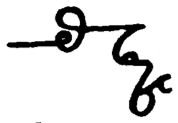
orthographec(source: Manual, “Specimen of the Ordinary Style”)
- ordinary style:
-
- full style:
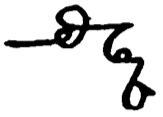
orthography(source: Manual, “Specimen of the Ordinary Style”)
- full style:
-
-
full style:

other(source: Manual, “Specimen of Fully-Written Style”) -
ordinary style:

ohr(source: Manual, “Specimen of the Ordinary Style”)
-
-
- ordinary style:

ohrs(source: Manual, “Abbreviate common endings”)
- ordinary style:
-
- abbreviated style:

ohr.se(source: Supplement, “Examples of Abbreviations”)
- abbreviated style:
-
-
every style:

o:u(source: Manual, “Dipththongs”) -
every style:

ou(source: Manual, “Dipththongs”)
-
-
- every style:

ou(source: Manual)
- every style:
-
- ordinary style:

ot(source: Manual, “Abbreviate common endings”)
- ordinary style:
-
- ordinary style:

othabn(source: Manual, “Ordinary Style”, Phrases)
- ordinary style:
-
- full style:

our(source: Manual, “From Macaulay’s History”)
- full style:
-
-
full style:

out(source: Manual, “How to Write and Join the Characters”) -
full style:

out(source: Manual, “Specimen of Fully-Written Style”)
-
-
- full style:

outlines(source: Manual, “Specimen of Fully-Written Style”)
- full style:
-
-
abbreviated style:

oer(source: Supplement, “Examples of Abbreviations”) -
full style:

over(source: Manual, “St John”)
-
-
- ordinary style:

over^rew(source: Manual, “St John”)
- ordinary style:
-
- full style:

owls(source: Manual, “How to Write and Join the Characters”)
- full style:
-
-
full style:

oxen(source: Manual, “From Macaulay’s History”) -
full style:

oxen(source: Manual, “St John”)
-
-
-
every style:

o:y(source: Manual, “Dipththongs”) -
every style:

oy(source: Manual, “Dipththongs”)
-
-
- every style:

oy(source: Manual)
- every style:
-
- full style:

o.olite(source: Manual, “Diphthongs”)
- full style:
P
-
- every style:

p(source: Manual, “The Cursive Alphabet”)
- every style:
-
- example style:

old English longhand letter p(source: Manual)
- example style:
-
- every style:

p(source: Manual)
- every style:
-
-
abbreviated style:

p_*(source: Supplement, “Examples of Abbreviations”) -
full style:

page(source: Manual, “Specimen of Fully-Written Style”) -
full style:

page(source: Manual, “Specimen of the Ordinary Style”)
-
-
-
abbreviated style:

p_s(source: Supplement, “Examples of Abbreviations”) -
full style:

pages(source: Manual, “Specimen of the Ordinary Style”)
-
-
- abbreviated style:

ppr(source: Supplement, “Examples of Abbreviations”)
- abbreviated style:
-
-
abbreviated style:

pt(source: Supplement, “Examples of Abbreviations”) -
full style:

part(source: Manual, “Specimen of the Ordinary Style”)
-
-
- abbreviated style:

ptec(source: Supplement, “Examples of Abbreviations”)
- abbreviated style:
-
- abbreviated style:

pty(source: Supplement, “Examples of Abbreviations”)
- abbreviated style:
-
- ordinary style:

pasover(source: Manual, “St John”)
- ordinary style:
-
- full style:

pay(source: Manual, “From Macaulay’s History”)
- full style:
-
- full style:

pearl(source: Manual)
- full style:
-
- ordinary style:

peasnt(source: Manual, “From Macaulay’s History”)
- ordinary style:
-
- abbreviated style:

pecu(source: Supplement, “Examples of Abbreviations”)
- abbreviated style:
-
- ordinary style:
ity.png)
pec^y(source: Manual, “Abbreviate common endings”)
- ordinary style:
-
- ordinary style:

pnmnshep(source: Manual, “Specimen of the Ordinary Style”)
- ordinary style:
-
-
abbreviated style:

pple(source: Supplement, “Examples of Abbreviations”) -
full style:

people(source: Manual, “From Macaulay’s History”)
-
-
- abbreviated style:

^c^s(source: Supplement, “Examples of Abbreviations”)
- abbreviated style:
- perhaps
-
Note: This isn’t the usual
phjoin. Instead, thehcircles around thep. -
ordinary style:

ph(source: Manual, “Abbreviations for Common Words”)
-
-
- abbreviated style:

^sn(source: Supplement, “Examples of Abbreviations”)
- abbreviated style:
-
- every style:

ph(source: Manual)
- every style:
-
- full style:

pharisees(source: Manual, “St John”)
- full style:
-
- full style:

philanthopics(source: Manual, “From Macaulay’s History”)
- full style:
-
- abbreviated style:

pho(source: Supplement, “Examples of Abbreviations”)
- abbreviated style:
-
- abbreviated style:

phophy(source: Supplement, “Examples of Abbreviations”)
- abbreviated style:
-
- full style:

phlegm(source: Manual, “How to Write and Join the Characters”)
- full style:
-
-
full style:

phonetic(source: Manual, “Specimen of Fully-Written Style”) -
ordinary style:

phnetec(source: Manual, “Specimen of the Ordinary Style”)
-
-
- full style:

phrase(source: Manual, “How to Write and Join the Characters”)
- full style:
-
- every style:

phth(source: Manual)
- every style:
-
- every style:

pl(source: Manual)
- every style:
-
-
full style:

place(source: Manual, “How to Write and Join the Characters”) -
full style:

place(source: Manual, “Specimen of Fully-Written Style”)
-
-
- abbreviated style:

plt(source: Supplement, “Examples of Abbreviations”)
- abbreviated style:
-
- full style:

plate(source: Manual, “The Cursive Alphabet”)
- full style:
-
- full style:

play(source: Manual)
- full style:
-
- full style:

po:em(source: Manual, “Diphthongs”)
- full style:
-
- abbreviated style:

pnt(source: Supplement, “Examples of Abbreviations”)
- abbreviated style:
-
- ordinary style:

portlnd(source: Manual, “From Macaulay’s History”)
- ordinary style:
-
- ordinary style:

posetev_y(source: Manual, “From Macaulay’s History”)
- ordinary style:
-
- ordinary style:

poster^y(source: Manual, “From Macaulay’s History”)
- ordinary style:
-
- full style:

pots(source: Manual, “St John”)
- full style:
-
- full style:

poured(source: Manual, “St John”)
- full style:
-
- every style:

pr(source: Manual)
- every style:
-
- full style:

practical(source: Manual, “Specimen of Fully-Written Style”)
- full style:
-
- abbreviated style:

prac(source: Supplement, “Examples of Abbreviations”)
- abbreviated style:
-
- full style:

pray(source: Manual)
- full style:
-
- full style:

preceding(source: Manual, “Specimen of Fully-Written Style”)
- full style:
-
- ordinary style:

precise_y(source: Manual, “From Macaulay’s History”)
- ordinary style:
-
- abbreviated style:

^*c^d(source: Supplement, “Examples of Abbreviations”)
- abbreviated style:
-
-
full style:
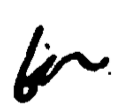
present(source: Manual, “How to Write and Join the Characters”) -
abbreviated style:

^sent(source: Supplement, “Examples of Abbreviations”) -
ordinary style:

presnt(source: Manual, “Specimen of the Ordinary Style”)
-
-
- ordinary style:

pres(source: Manual, “From Macaulay’s History”)
- ordinary style:
-
- ordinary style:

previ:ous_y(source: Manual, “Specimen of the Ordinary Style”)
- ordinary style:
-
- full style:

price(source: Manual, “From Macaulay’s History”)
- full style:
-
- ordinary style:

prenceples(source: Manual, “Specimen of the Ordinary Style”)
- ordinary style:
-
- abbreviated style:

^vate(source: Supplement, “Examples of Abbreviations”)
- abbreviated style:
-
- full style:

produce(source: Manual, “From Macaulay’s History”)
- full style:
-
- abbreviated style:

^mese(source: Supplement, “Examples of Abbreviations”)
- abbreviated style:
-
- full style:

proof(source: Manual, “The Cursive Alphabet”)
- full style:
-
- full style:

proper(source: Manual, “Specimen of Fully-Written Style”)
- full style:
-
- abbreviated style:

^pty(source: Supplement, “Examples of Abbreviations”)
- abbreviated style:
-
- every style:

ps(source: Manual)
- every style:
-
- every style:

pt(source: Manual)
- every style:
-
- abbreviated style:

pub(source: Supplement, “Examples of Abbreviations”)
- abbreviated style:
-
- ordinary style:

publeshd(source: Manual, “From Macaulay’s History”)
- ordinary style:
-
- full style:

puff'd(source: Manual, “How to Write and Join the Characters”)
- full style:
-
- every style:

—(source: Manual, “Punctuation”)
- every style:
-
- every style:

-(source: Manual, “Punctuation”)
- every style:
- Punctuation: Initial Capitals Mark
-
Note: Initial capitals, as in proper names or some abbreviations, are marked by a diagonal line under the start of the outline. This line might cut through descenders.
-
every style:

[none provided](source: Manual, “Initial Capitals”)
-
-
- full style:

purpose(source: Manual, “From Macaulay’s History”)
- full style:
-
- full style:

purposes(source: Manual, “Specimen of Fully-Written Style”)
- full style:
-
-
full style:

puzzle(source: Manual) -
ordinary style:

puzle(source: Manual, “Specimen of the Ordinary Style”)
-
Q
-
- every style:

q(source: Manual, “The Cursive Alphabet”)
- every style:
-
- ordinary style:

qnt^y(source: Manual, “From Macaulay’s History”)
- ordinary style:
-
- full style:

qarter(source: Manual, “From Macaulay’s History”)
- full style:
- quay
-
Note: This demonstrates using the “under-curve” version of
ayafterq. -
every style:

qay(source: Manual, “How to Join”, A)
-
-
- full style:

qery(source: Manual, “The Cursive Alphabet”)
- full style:
-
-
abbreviated style:

qe(source: Supplement, “Examples of Abbreviations”) -
full style:

quite(source: Manual, “Specimen of Fully-Written Style”)
-
R
-
- every style:

r(source: Manual, “The Cursive Alphabet”)
- every style:
-
- full style:

rabbi(source: Manual, “St John”)
- full style:
-
- every style:

rce(source: Manual)
- every style:
-
- every style:

rd(source: Manual)
- every style:
-
- full style:

re.enter(source: Manual, “Diphthongs”)
- full style:
-
- full style:

raeches(source: Manual, “Specimen of the Ordinary Style”)
- full style:
-
-
full style:

read(source: Manual, “Specimen of Fully-Written Style”) -
full style:

raed(source: Manual, “Specimen of the Ordinary Style”)
-
-
- full style:

rael(source: Manual)
- full style:
-
- full style:

raer(source: Manual, “St John”)
- full style:
-
- ordinary style:

re:arange(source: Manual, “Specimen of the Ordinary Style”)
- ordinary style:
-
- ordinary style:

re:arangmt(source: Manual, “Specimen of the Ordinary Style”)
- ordinary style:
-
- ordinary style:

raesn(source: Manual, “Specimen of the Ordinary Style”)
- ordinary style:
-
- full style:

regard(source: Manual, “From Macaulay’s History”)
- full style:
-
- full style:

reign(source: Manual, “From Macaulay’s History”)
- full style:
-
- abbreviated style:

rel_n(source: Supplement, “Examples of Abbreviations”)
- abbreviated style:
-
- ordinary style:

remeans(source: Manual, “From Macaulay’s History”)
- ordinary style:
-
- full style:

remarks(source: Manual, “Specimen of the Ordinary Style”)
- full style:
-
- ordinary style:

rememberd(source: Manual, “St John”)
- ordinary style:
-
- full style:

repeat(source: Manual, “Specimen of the Ordinary Style”)
- full style:
-
- abbreviated style:

rept(source: Supplement, “Examples of Abbreviations”)
- abbreviated style:
-
- ordinary style:

repve(source: Manual, “The General Method”)
- ordinary style:
-
- ordinary style:

representd(source: Manual, “Specimen of the Ordinary Style”)
- ordinary style:
-
- ordinary style:

reqeres(source: Manual, “Specimen of the Ordinary Style”)
- ordinary style:
-
- ordinary style:

respectY(source: Manual, “From Macaulay’s History”)
- ordinary style:
-
- abbreviated style:

resp_y(source: Supplement, “Examples of Abbreviations”)
- abbreviated style:
-
- ordinary style:

restoratun(source: Manual, “From Macaulay’s History”)
- ordinary style:
-
- ordinary style:

restrectd(source: Manual, “Specimen of the Ordinary Style”)
- ordinary style:
-
- ordinary style:

revolutun(source: Manual, “From Macaulay’s History”)
- ordinary style:
-
- every style:

rf(source: Manual)
- every style:
-
- full style:

rifle(source: Manual, “How to Write and Join the Characters”)
- full style:
-
- ordinary style:

rt(source: Manual, “Abbreviations for Common Words”)
- ordinary style:
-
- full style:

rise(source: Manual, “St John”)
- full style:
-
- full style:

risen(source: Manual, “St John”)
- full style:
-
- every style:

rk(source: Manual)
- every style:
-
- every style:

rn(source: Manual)
- every style:
-
- full style:

rob'd(source: Manual, “How to Write and Join the Characters”)
- full style:
-
- full style:

roller(source: Manual, “The Cursive Alphabet”)
- full style:
- round
-
Note: This is an example of a general principle, that -ound can be written as just
ou. -
ordinary style:

rou(source: Manual, “Abbreviations for Common Words”)
-
-
- every style:

rp(source: Manual)
- every style:
-
- every style:

rs(source: Manual)
- every style:
-
- every style:

rt(source: Manual)
- every style:
-
- full style:

ruler(source: Manual, “St John”)
- full style:
-
-
full style:

rules(source: Manual, “Specimen of Fully-Written Style”) -
full style:

rules(source: Manual, “Specimen of the Ordinary Style”)
-
-
- every style:

rv(source: Manual)
- every style:
-
- full style:

rye(source: Manual, “From Macaulay’s History”)
- full style:
S
-
- every style:

s(source: Manual, “The Cursive Alphabet”)
- every style:
-
-
every style:

s.e(source: Manual, “Initial Capitals”) -
every style:

s e(source: Manual)
-
-
- example style:

old English longhand letter S(source: Manual)
- example style:
-
-
every style:

s(source: Manual) -
every style:

s(source: Manual)
-
-
-
every style:

s(source: Manual) -
every style:

s(source: Manual)
-
-
- ordinary style:

sacrd(source: Manual, “From Macaulay’s History”)
- ordinary style:
-
- full style:

sacrifice(source: Manual, “Specimen of Fully-Written Style”)
- full style:
-
-
full style:

said(source: Manual, “From Macaulay’s History”) -
ordinary style:

saed(source: Manual, “From Macaulay’s History”)
-
-
- ordinary style:

saeth(source: Manual, “St John”)
- ordinary style:
-
- full style:

salt(source: Manual, “From Macaulay’s History”)
- full style:
-
- full style:

salve(source: Manual, “How to Write and Join the Characters”)
- full style:
-
- abbreviated style:

sfory(source: Supplement, “Examples of Abbreviations”)
- abbreviated style:
-
- abbreviated style:

sfy(source: Supplement, “Examples of Abbreviations”)
- abbreviated style:
-
- abbreviated style:

sa^r(source: Supplement, “Examples of Abbreviations”)
- abbreviated style:
-
- full style:

saw(source: Manual, “St John”)
- full style:
-
- ordinary style:
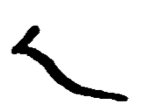
sayY(source: Manual, “Abbreviate common endings”)
- ordinary style:
-
- full style:

says(source: Manual, “How to Write and Join the Characters”)
- full style:
-
- every style:

sc(source: Manual)
- every style:
-
-
abbreviated style:

sc_y(source: Supplement, “Examples of Abbreviations”) -
ordinary style:

scarce_y(source: Manual, “From Macaulay’s History”)
-
-
- full style:

scent(source: Manual, “How to Write and Join the Characters”)
- full style:
- school
-
Note: The abbreviated style smoothly joins the
chto thes. -
abbreviated style:

schol(source: Supplement, “Examples of Abbreviations”) -
full style:

school(source: Manual)
-
-
- abbreviated style:

scb(source: Supplement, “Examples of Abbreviations”)
- abbreviated style:
-
- abbreviated style:

scpt(source: Supplement, “Examples of Abbreviations”)
- abbreviated style:
-
- full style:

scripture(source: Manual, “St John”)
- full style:
-
- full style:

scourge(source: Manual, “St John”)
- full style:
-
- full style:

seas(source: Manual)
- full style:
-
- full style:

seat(source: Manual, “How to Write and Join the Characters”)
- full style:
-
- full style:

sections(source: Manual, “Specimen of Fully-Written Style”)
- full style:
-
- ordinary style:

seeY(source: Manual, “St John”)
- ordinary style:
-
- ordinary style:
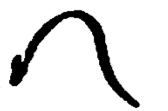
seemY(source: Manual, “Abbreviate common endings”)
- ordinary style:
-
- full style:

seems(source: Manual, “From Macaulay’s History”)
- full style:
-
-
full style:

seen(source: Manual) -
full style:

seen(source: Manual, “From Macaulay’s History”)
-
-
- ordinary style:

seldm(source: Manual, “From Macaulay’s History”)
- ordinary style:
-
- ordinary style:

sef(source: Manual, “Abbreviations for Common Words”)
- ordinary style:
-
-
ordinary style:

sves(source: Manual, “Abbreviations for Common Words”) -
abbreviated style:

s^s(source: Supplement, “Examples of Abbreviations”)
-
-
- full style:

sends(source: Manual, “From Macaulay’s History”)
- full style:
-
- full style:

sense(source: Manual, “How to Write and Join the Characters”)
- full style:
-
- full style:

sent(source: Manual, “How to Write and Join the Characters”)
- full style:
-
-
full style:

seri:ous(source: Manual, “Diphthongs”) -
full style:

serious(source: Manual, “Specimen of Fully-Written Style”)
-
-
- abbreviated style:

s^t(source: Supplement, “Examples of Abbreviations”)
- abbreviated style:
-
- ordinary style:

servnts(source: Manual, “St John”)
- ordinary style:
-
- full style:

serviceable(source: Manual, “From Macaulay’s History”)
- full style:
-
- full style:

set(source: Manual, “St John”)
- full style:
-
-
abbreviated style:

sev(source: Supplement, “Examples of Abbreviations”) -
full style:

several(source: Manual, “Specimen of the Ordinary Style”)
-
-
- full style:

sews(source: Manual)
- full style:
-
- every style:

sh(source: Manual)
- every style:
-
- every style:

sha(source: Manual)
- every style:
-
- ordinary style:

sha(source: Manual, “Abbreviations for Common Words”)
- ordinary style:
-
- ordinary style:

sh(source: Manual, “Abbreviations for Common Words”)
- ordinary style:
-
- full style:

shed(source: Manual)
- full style:
-
- full style:

sheep(source: Manual, “St John”)
- full style:
-
- full style:

shewest(source: Manual, “St John”)
- full style:
-
- ordinary style:

shelYs(source: Manual, “From Macaulay’s History”)
- ordinary style:
-
- full style:

shoes(source: Manual, “From Macaulay’s History”)
- full style:
-
- full style:

shop(source: Manual, “From Macaulay’s History”)
- full style:
-
- abbreviated style:

srt(source: Supplement, “Examples of Abbreviations”)
- abbreviated style:
-
- full style:

shorter(source: Manual, “Specimen of Fully-Written Style”)
- full style:
-
-
abbreviated style:

srtnd(source: Supplement, “Examples of Abbreviations”) -
full style:

shorthand(source: Manual, “Specimen of Fully-Written Style”)
-
-
- ordinary style:

shorthnd(source: Manual, “Specimen of the Ordinary Style”)
- ordinary style:
-
-
ordinary style:

shd(source: Manual, “Abbreviations for Common Words”) -
ordinary style:

shd(source: Manual, “Specimen of the Ordinary Style”)
-
-
- full style:

show(source: Manual, “Specimen of Fully-Written Style”)
- full style:
-
- full style:

shred(source: Manual)
- full style:
-
-
full style:

sign(source: Manual, “How to Write and Join the Characters”) -
abbreviated style:

s_n(source: Supplement, “Examples of Abbreviations”) -
full style:

sign(source: Manual, “St John”)
-
-
- abbreviated style:

s_fy(source: Supplement, “Examples of Abbreviations”)
- abbreviated style:
-
- full style:

signs(source: Manual, “Specimen of the Ordinary Style”)
- full style:
-
-
full style:

simple(source: Manual, “Specimen of Fully-Written Style”) -
ordinary style:

semple(source: Manual, “Specimen of the Ordinary Style”)
-
-
- full style:

since(source: Manual, “How to Write and Join the Characters”)
- full style:
-
- ordinary style:

sing(source: Manual, “Abbreviate common endings”)
- ordinary style:
-
- full style:
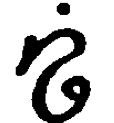
singer(source: Manual, “How to Write and Join the Characters”)
- full style:
-
- ordinary style:
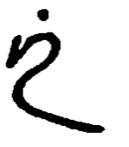
singY(source: Manual, “Abbreviate common endings”)
- ordinary style:
-
- full style:
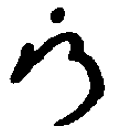
sink(source: Manual, “How to Write and Join the Characters”)
- full style:
-
- abbreviated style:

s(source: Supplement, “Examples of Abbreviations”)
- abbreviated style:
-
- abbreviated style:

sers(source: Supplement, “Examples of Abbreviations”)
- abbreviated style:
-
- ordinary style:

sitY(source: Manual, “St John”)
- ordinary style:
-
- ordinary style:

sex(source: Manual, “St John”)
- ordinary style:
-
- full style:

size(source: Manual, “The Cursive Alphabet”)
- full style:
-
- full style:

sizes(source: Manual, “Specimen of the Ordinary Style”)
- full style:
-
- every style:

sk(source: Manual)
- every style:
-
- full style:

sketch(source: Manual, “How to Write and Join the Characters”)
- full style:
-
- full style:

skiffs(source: Manual, “How to Write and Join the Characters”)
- full style:
-
- every style:

sl(source: Manual)
- every style:
-
- full style:

slay(source: Manual)
- full style:
-
- every style:

sleep(source: Manual, “Doubled Letters”)
- every style:
-
- full style:

slew(source: Manual, “How to Write and Join the Characters”)
- full style:
-
- full style:

slope(source: Manual, “Specimen of the Ordinary Style”)
- full style:
-
- every style:

sm(source: Manual)
- every style:
-
-
full style:

small(source: Manual, “Specimen of Fully-Written Style”) -
ordinary style:

smal(source: Manual, “St John”)
-
-
- every style:

sn(source: Manual)
- every style:
-
- full style:

so(source: Manual, “Specimen of Fully-Written Style”)
- full style:
-
- full style:

soap(source: Manual, “From Macaulay’s History”)
- full style:
-
- full style:

social(source: Manual)
- full style:
-
- full style:

soft(source: Manual, “How to Write and Join the Characters”)
- full style:
-
- full style:

sold(source: Manual, “St John”)
- full style:
-
- abbreviated style:

solor(source: Supplement, “Examples of Abbreviations”)
- abbreviated style:
-
- abbreviated style:

sm(source: Supplement, “Examples of Abbreviations”)
- abbreviated style:
-
- abbreviated style:

smtems(source: Supplement, “Examples of Abbreviations”)
- abbreviated style:
-
- full style:

sort(source: Manual, “The Cursive Alphabet”)
- full style:
-
- full style:

sound(source: Manual, “Specimen of the Ordinary Style”)
- full style:
-
- abbreviated style:

srce(source: Supplement, “Examples of Abbreviations”)
- abbreviated style:
-
- every style:

sp(source: Manual)
- every style:
-
- every style:

sp(source: Manual)
- every style:
-
- full style:

spake(source: Manual, “St John”)
- full style:
-
- full style:

spare(source: Manual, “From Macaulay’s History”)
- full style:
-
- full style:

spear(source: Manual, “How to Write and Join the Characters”)
- full style:
-
- abbreviated style:

sp(source: Supplement, “Examples of Abbreviations”)
- abbreviated style:
-
- ordinary style:

specemen(source: Manual, “Specimen of the Ordinary Style”)
- ordinary style:
-
- ordinary style:

spel(source: Manual, “Specimen of the Ordinary Style”)
- ordinary style:
-
-
full style:

spelling(source: Manual, “Specimen of Fully-Written Style”) -
ordinary style:

spelY(source: Manual, “Specimen of the Ordinary Style”)
-
-
-
full style:

spelt(source: Manual, “Specimen of Fully-Written Style”) -
full style:

spelt(source: Manual, “Specimen of the Ordinary Style”)
-
-
- full style:

sphere(source: Manual, “How to Write and Join the Characters”)
- full style:
-
- every style:

sq(source: Manual)
- every style:
-
- full style:

sqare(source: Manual, “How to Write and Join the Characters”)
- full style:
-
- ordinary style:

sqard(source: Manual, “From Macaulay’s History”)
- ordinary style:
-
- every style:

sra(source: Manual)
- every style:
-
- every style:

st(source: Manual)
- every style:
-
- full style:

st pauls(source: Manual, “From Macaulay’s History”)
- full style:
-
- full style:

stage(source: Manual, “Specimen of the Ordinary Style”)
- full style:
-
-
abbreviated style:

stte(source: Supplement, “Examples of Abbreviations”) -
ordinary style:

stte(source: Manual, “From Macaulay’s History”)
-
-
- every style:

ste(source: Manual)
- every style:
-
- full style:

steep(source: Manual, “How to Write and Join the Characters”)
- full style:
-
- full style:

stew(source: Manual)
- full style:
-
-
full style:

still(source: Manual, “How to Write and Join the Characters”) -
full style:

still(source: Manual, “Specimen of Fully-Written Style”) -
ordinary style:

stel(source: Manual, “From Macaulay’s History”)
-
-
-
ordinary style:
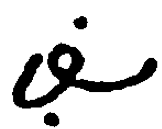
stird(source: Manual, “Abbreviate common endings”) -
ordinary style:

stirrd(source: Manual)
-
-
- ordinary style:

stockYs(source: Manual, “From Macaulay’s History”)
- ordinary style:
-
-
ordinary style:

stne(source: Manual, “From Macaulay’s History”) -
ordinary style:

stne(source: Manual, “St John”)
-
-
- ordinary style:

straeght(source: Manual, “Specimen of the Ordinary Style”)
- ordinary style:
-
- abbreviated style:

str(source: Supplement, “Examples of Abbreviations”)
- abbreviated style:
-
- ordinary style:

strect_y(source: Manual, “Specimen of the Ordinary Style”)
- ordinary style:
-
- full style:

strokes(source: Manual, “Specimen of the Ordinary Style”)
- full style:
-
- abbreviated style:

str(source: Supplement, “Examples of Abbreviations”)
- abbreviated style:
-
-
full style:

student(source: Manual, “Specimen of Fully-Written Style”) -
full style:

student(source: Manual, “Specimen of the Ordinary Style”)
-
-
- full style:

stupid(source: Manual)
- full style:
-
-
full style:

style(source: Manual, “Specimen of Fully-Written Style”) -
full style:

style(source: Manual, “Specimen of the Ordinary Style”)
-
-
- full style:

subtract(source: Manual, “How to Write and Join the Characters”)
- full style:
-
- full style:

subvent(source: Manual, “How to Write and Join the Characters”)
- full style:
-
- ordinary style:

suceed:d(source: Manual, “Specimen of the Ordinary Style”)
- ordinary style:
- such
-
Note: The abbreviated style introduces a smooth ligature of
sandch, where thesruns in from the left side rather than the top. -
abbreviated style:

sch(source: Supplement, “Examples of Abbreviations”) -
full style:

such(source: Manual, “Specimen of Fully-Written Style”) -
full style:

such(source: Manual, “Specimen of the Ordinary Style”)
-
-
- abbreviated style:

schas(source: Supplement, “Examples of Abbreviations”)
- abbreviated style:
-
- full style:

suckle(source: Manual, “How to Write and Join the Characters”)
- full style:
-
- ordinary style:

sufeceent_y(source: Manual, “From Macaulay’s History”)
- ordinary style:
-
- full style:

sugar(source: Manual, “From Macaulay’s History”)
- full style:
-
- ordinary style:

sugestd(source: Manual, “Specimen of the Ordinary Style”)
- ordinary style:
-
- full style:

suit(source: Manual, “How to Write and Join the Characters”)
- full style:
-
- full style:

sun(source: Manual)
- full style:
-
- every style:

sup(source: Manual, “Doubled Letters”)
- every style:
-
- abbreviated style:

su^*(source: Supplement, “Examples of Abbreviations”)
- abbreviated style:
-
- abbreviated style:

su^or(source: Supplement, “Examples of Abbreviations”)
- abbreviated style:
-
- every style:

sw(source: Manual)
- every style:
-
-
full style:

system(source: Manual, “Specimen of Fully-Written Style”) -
full style:

system(source: Manual, “Specimen of the Ordinary Style”)
-
-
- full style:

systems(source: Manual, “Specimen of the Ordinary Style”)
- full style:
T
-
- every style:

t(source: Manual, “The Cursive Alphabet”)
- every style:
-
- example style:

old English longhand letter t(source: Manual)
- example style:
-
- full style:

tables(source: Manual, “St John”)
- full style:
-
-
abbreviated style:

t_*(source: Supplement, “Examples of Abbreviations”) -
full style:

take(source: Manual, “St John”)
-
-
-
abbreviated style:

t_n(source: Supplement, “Examples of Abbreviations”) -
ordinary style:

tken(source: Manual, “Specimen of the Ordinary Style”)
-
-
- full style:

talk(source: Manual, “From Macaulay’s History”)
- full style:
-
- full style:

taste(source: Manual, “From Macaulay’s History”)
- full style:
-
- ordinary style:

tastd(source: Manual, “St John”)
- ordinary style:
-
- full style:

tch(source: Manual)
- full style:
-
- full style:

teachers(source: Manual, “Specimen of the Ordinary Style”)
- full style:
-
- ordinary style:

teachY(source: Manual, “Specimen of the Ordinary Style”)
- ordinary style:
-
- full style:

temple(source: Manual, “St John”)
- full style:
-
- ordinary style:

tend:d(source: Manual, “From Macaulay’s History”)
- ordinary style:
-
- ordinary style:

termenatun(source: Manual, “Specimen of the Ordinary Style”)
- ordinary style:
-
- ordinary style:

testefy(source: Manual, “St John”)
- ordinary style:
-
-
every style:

th(source: Manual) -
every style:

th(source: Manual)
-
-
- ordinary style:

^n(source: Manual, “Specimen of the Ordinary Style”)
- ordinary style:
-
- ordinary style:

^ankls(source: Manual, “Abbreviate common endings”)
- ordinary style:
-
-
ordinary style:

^t(source: Manual) -
full style:

that(source: Manual, “Specimen of Fully-Written Style”) -
ordinary style:

^t(source: Manual, “Specimen of the Ordinary Style”)
-
-
-
ordinary style:

^e(source: Manual) -
full style:

the(source: Manual, “Specimen of Fully-Written Style”) -
ordinary style:

^e(source: Manual, “Specimen of the Ordinary Style”)
-
-
- ordinary style:

^ee(source: Manual, “St John”)
- ordinary style:
-
- ordinary style:

^eer(source: Manual, “Specimen of the Ordinary Style”)
- ordinary style:
-
-
ordinary style:

^em(source: Manual) -
ordinary style:

^em(source: Manual, “Specimen of the Ordinary Style”) -
ordinary style:

^em(source: Manual, “St John”)
-
-
- ordinary style:

^emsves(source: Manual, “Abbreviations for Common Words”)
- ordinary style:
-
- ordinary style:

^en(source: Manual, “Specimen of the Ordinary Style”)
- ordinary style:
-
- ordinary style:

^er(source: Manual, “Specimen of the Ordinary Style”)
- ordinary style:
-
- ordinary style:
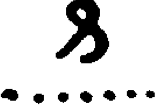
^erf(source: Manual, “Abbreviations for Common Words”)
- ordinary style:
-
- ordinary style:

^ese(source: Manual, “Specimen of the Ordinary Style”)
- ordinary style:
-
- ordinary style:

^ey(source: Manual)
- ordinary style:
-
- ordinary style:

^ick(source: Manual, “Specimen of the Ordinary Style”)
- ordinary style:
-
- ordinary style:

^in(source: Manual, “Specimen of the Ordinary Style”)
- ordinary style:
-
- ordinary style:

^ine(source: Manual, “St John”)
- ordinary style:
- thing
-
Note: Distinguishing outline: The curved -ing always means “thing”. The raised straight -ing means “being” instead.
-
ordinary style:

Y(source: Manual, “Abbreviations for Common Words”)
-
-
- ordinary style:

^Ys(source: Manual, “St John”)
- ordinary style:
-
- ordinary style:

^ird(source: Manual, “St John”)
- ordinary style:
-
-
ordinary style:

^es(source: Manual) -
full style:

this(source: Manual, “Specimen of Fully-Written Style”)
-
-
- thoroughly style:

oro_y(source: Manual, “Specimen of the Ordinary Style”)
- thoroughly style:
-
- ordinary style:

those(source: Manual, “From Macaulay’s History”)
- ordinary style:
-
- ordinary style:

^ou(source: Manual, “St John”)
- ordinary style:
-
- ordinary style:

^otfl ns(source: Manual, “Abbreviate common endings”)
- ordinary style:
-
- ordinary style:

^ousnds(source: Manual, “From Macaulay’s History”)
- ordinary style:
-
- ordinary style:

^o(source: Manual)
- ordinary style:
-
- ordinary style:

^ree(source: Manual, “St John”)
- ordinary style:
-
- ordinary style:

^rew(source: Manual, “St John”)
- ordinary style:
-
- ordinary style:

^ro(source: Manual, “Specimen of the Ordinary Style”)
- ordinary style:
-
- ordinary style:
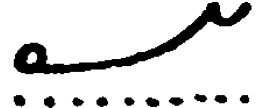
^rout(source: Manual, “Abbreviations for Common Words”)
- ordinary style:
-
-
full style:

thus(source: Manual, “Specimen of Fully-Written Style”) -
ordinary style:

^us(source: Manual, “Specimen of the Ordinary Style”)
-
-
- abbreviated style:

^y(source: Supplement, “Examples of Abbreviations”)
- abbreviated style:
-
- full style:

time(source: Manual, “Specimen of the Ordinary Style”)
- full style:
-
- full style:
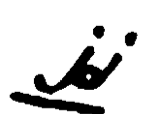
tisri(source: Manual)
- full style:
-
- every style:

tle(source: Manual)
- every style:
-
-
ordinary style:

t(source: Manual, “Abbreviations for Common Words”) -
full style:

to(source: Manual, “Specimen of Fully-Written Style”) -
ordinary style:

t(source: Manual, “Specimen of the Ordinary Style”)
-
-
- ordinary style:

tb(source: Manual, “Ordinary Style”, Phrases)
- ordinary style:
-
- ordinary style:

tghr(source: Manual, “Specimen of the Ordinary Style”)
- ordinary style:
-
- full style:

toil(source: Manual, “How to Write and Join the Characters”)
- full style:
-
- ordinary style:

toild(source: Manual, “From Macaulay’s History”)
- ordinary style:
-
- full style:

to(source: Manual, “Doubled Letters”)
- full style:
-
- ordinary style:

tards(source: Manual, “Abbreviate common endings”)
- ordinary style:
-
- every style:

tr(source: Manual)
- every style:
-
- full style:

trade(source: Manual, “From Macaulay’s History”)
- full style:
- transact
-
Note: Note the
ctligature used in the abbreviated style. -
abbreviated style:

trsact(source: Supplement, “Examples of Abbreviations”)
-
-
- full style:

trencher(source: Manual, “From Macaulay’s History”)
- full style:
-
- ordinary style:

trys(source: Manual)
- ordinary style:
-
- full style:

tropical(source: Manual, “From Macaulay’s History”)
- full style:
-
- full style:

trust(source: Manual, “The Cursive Alphabet”)
- full style:
-
- abbreviated style:

tree(source: Supplement, “Examples of Abbreviations”)
- abbreviated style:
-
- full style:

truth(source: Manual, “How to Write and Join the Characters”)
- full style:
-
- full style:

turtle(source: Manual, “How to Write and Join the Characters”)
- full style:
-
- every style:

tw(source: Manual)
- every style:
-
-
full style:

two(source: Manual, “How to Write and Join the Characters”) -
full style:

two(source: Manual, “Specimen of the Ordinary Style”)
-
U
-
- every style:

u(source: Manual, “The Cursive Alphabet”)
- every style:
-
- every style:

ua(source: Manual)
- every style:
-
- full style:

ui(source: Manual)
- full style:
-
- ordinary style:

unadvesabl(source: Manual, “Specimen of the Ordinary Style”)
- ordinary style:
-
- ordinary style:

u(source: Manual, “Abbreviations for Common Words”)
- ordinary style:
-
- ordinary style:

undoubtd_y(source: Manual, “From Macaulay’s History”)
- ordinary style:
-
- full style:

unless(source: Manual, “How to Write and Join the Characters”)
- full style:
-
- ordinary style:

untel(source: Manual, “St John”)
- ordinary style:
-
- ordinary style:

unt(source: Manual, “St John”)
- ordinary style:
-
- full style:

untouched(source: Manual, “From Macaulay’s History”)
- full style:
-
- full style:

up(source: Manual, “St John”)
- full style:
-
- full style:

upper(source: Manual, “The Cursive Alphabet”)
- full style:
-
- full style:

us(source: Manual, “St John”)
- full style:
-
-
full style:

use(source: Manual, “Specimen of Fully-Written Style”) -
full style:

use(source: Manual, “Specimen of the Ordinary Style”)
-
-
- ordinary style:

usefl(source: Manual, “Abbreviate common endings”)
- ordinary style:
-
- ordinary style:
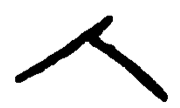
usY(source: Manual, “Abbreviate common endings”)
- ordinary style:
-
-
ordinary style:
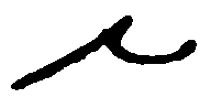
usd(source: Manual, “Abbreviate common endings”) -
ordinary style:

usd(source: Manual)
-
V
-
- every style:

v(source: Manual, “The Cursive Alphabet”)
- every style:
-
- full style:

value(source: Manual, “Specimen of Fully-Written Style”)
- full style:
-
- abbreviated style:

vfy(source: Supplement, “Examples of Abbreviations”)
- abbreviated style:
-
-
abbreviated style:

v(source: Supplement, “Examples of Abbreviations”) -
full style:

very(source: Manual, “Specimen of the Ordinary Style”) -
full style:

very(source: Manual, “From Macaulay’s History”)
-
-
- full style:

view(source: Manual)
- full style:
-
- full style:

vir.gin(source: Manual, “Dividing a Word”)
- full style:
-
- full style:

vogue(source: Manual, “Specimen of the Ordinary Style”)
- full style:
-
- full style:

vowel(source: Manual, “Specimen of the Ordinary Style”)
- full style:
W
-
- every style:

w(source: Manual, “The Cursive Alphabet”)
- every style:
-
- full style:

wages(source: Manual, “From Macaulay’s History”)
- full style:
-
- full style:

walk(source: Manual, “How to Write and Join the Characters”)
- full style:
-
- ordinary style:

wntd(source: Manual, “St John”)
- ordinary style:
-
- full style:

water(source: Manual, “St John”)
- full style:
-
- full style:

water.pots(source: Manual, “St John”)
- full style:
-
- full style:

wavy(source: Manual, “The Cursive Alphabet”)
- full style:
-
-
full style:

way(source: Manual) -
full style:

way(source: Manual, “Specimen of the Ordinary Style”)
-
-
- full style:

we(source: Manual, “From Macaulay’s History”)
- full style:
-
- ordinary style:

wk(source: Manual, “Abbreviations for Common Words”)
- ordinary style:
-
- full style:

went(source: Manual, “St John”)
- full style:
-
- ordinary style:

wer(source: Manual, “Abbreviations for Common Words”)
- ordinary style:
-
- full style:

wet(source: Manual)
- full style:
-
- every style:

wh(source: Manual)
- every style:
-
- full style:

what(source: Manual)
- full style:
-
- ordinary style:

whatso^r(source: Manual, “St John”)
- ordinary style:
-
- full style:

whaet(source: Manual, “From Macaulay’s History”)
- full style:
-
-
full style:

when(source: Manual, “Specimen of Fully-Written Style”) -
full style:

when(source: Manual, “St John”)
-
-
- full style:

whence(source: Manual, “St John”)
- full style:
-
-
full style:

where(source: Manual, “Specimen of Fully-Written Style”) -
Note: Callendar tends to write a nearly closed wh-loop, which is further aggravated by the scanning process. Take care to open the wh-loop to differentiate it from ch
-
ordinary style:

wher(source: Manual, “Specimen of the Ordinary Style”)
-
-
-
ordinary style:

ch(source: Manual, “Abbreviations for Common Words”) -
full style:

which(source: Manual) -
full style:

which(source: Manual, “Specimen of Fully-Written Style”) -
ordinary style:

ch(source: Manual, “Specimen of the Ordinary Style”) -
ordinary style:

ch(source: Manual, “St John”)
-
-
-
every style:

who(source: Manual) -
full style:

who(source: Manual, “From Macaulay’s History”)
-
-
-
full style:

will(source: Manual, “Specimen of Fully-Written Style”) -
ordinary style:

well(source: Manual, “Specimen of the Ordinary Style”)
-
-
-
full style:
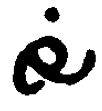
wilt(source: Manual, “How to Write and Join the Characters”) -
ordinary style:

welt(source: Manual, “St John”)
-
-
- full style:

wine(source: Manual, “St John”)
- full style:
-
- abbreviated style:

wesm(source: Supplement, “Examples of Abbreviations”)
- abbreviated style:
-
-
ordinary style:

th(source: Manual, “Abbreviations for Common Words”) -
full style:

with(source: Manual) -
full style:

with(source: Manual, “Specimen of Fully-Written Style”) -
Note: written with an open h
-
ordinary style:

weh(source: Manual, “Specimen of the Ordinary Style”)
-
-
- ordinary style:

thaveet(source: Manual, “Ordinary Style”, Phrases)
- ordinary style:
-
- full style:

without(source: Manual, “Specimen of Fully-Written Style”)
- full style:
-
- every style:

wk(source: Manual)
- every style:
-
- every style:

wl(source: Manual)
- every style:
-
- every style:

wn(source: Manual)
- every style:
-
- full style:

woe(source: Manual)
- full style:
-
-
ordinary style:
m(a)n.png)
wmn(source: Manual) -
ordinary style:

wmn(source: Manual, “St John”)
-
-
- full style:

wol.wich(source: Manual, “Dividing a Word”)
- full style:
-
-
abbreviated style:

rd(source: Supplement, “Examples of Abbreviations”) -
full style:

word(source: Manual, “Specimen of Fully-Written Style”) -
full style:

word(source: Manual, “Specimen of the Ordinary Style”)
-
-
- full style:

words(source: Manual, “Specimen of Fully-Written Style”)
- full style:
-
-
full style:

work(source: Manual, “How to Write and Join the Characters”) -
abbreviated style:

rk(source: Supplement, “Examples of Abbreviations”) -
full style:

work(source: Manual, “Specimen of the Ordinary Style”)
-
-
- full style:

work.house(source: Manual, “From Macaulay’s History”)
- full style:
-
- ordinary style:

workY(source: Manual, “From Macaulay’s History”)
- ordinary style:
-
-
abbreviated style:

wd(source: Supplement, “Examples of Abbreviations”) -
full style:

world(source: Manual)
-
-
- full style:

worse(source: Manual, “St John”)
- full style:
-
- abbreviated style:

worp(source: Supplement, “Examples of Abbreviations”)
- abbreviated style:
-
-
ordinary style:

wd(source: Manual, “Abbreviations for Common Words”) -
ordinary style:

wd(source: Manual, “From Macaulay’s History”)
-
-
- full style:

wow(source: Manual, “The Cursive Alphabet”)
- full style:
-
- every style:

wr(source: Manual)
- every style:
-
-
full style:

write(source: Manual) -
full style:

write(source: Manual, “Specimen of Fully-Written Style”) -
ordinary style:

wrete(source: Manual, “Specimen of the Ordinary Style”)
-
-
-
full style:

writing(source: Manual, “Specimen of Fully-Written Style”) -
ordinary style:

wretY(source: Manual, “Specimen of the Ordinary Style”)
-
-
-
full style:

written(source: Manual, “Specimen of Fully-Written Style”) -
ordinary style:

wreten(source: Manual, “Specimen of the Ordinary Style”)
-
-
- every style:

ws(source: Manual)
- every style:
X
-
- every style:

x(source: Manual, “The Cursive Alphabet”)
- every style:
-
- every style:

xh(source: Manual)
- every style:
-
- every style:

xp(source: Manual)
- every style:
-
- every style:

xt(source: Manual)
- every style:
Y
-
- every style:

y(source: Manual, “The Cursive Alphabet”)
- every style:
-
- full style:

yacht(source: Manual)
- full style:
-
-
full style:

years(source: Manual) -
full style:

years(source: Manual, “Specimen of the Ordinary Style”)
-
-
- ordinary style:

yeomn(source: Manual, “From Macaulay’s History”)
- ordinary style:
-
- full style:

yet(source: Manual)
- full style:
-
- full style:

yore(source: Manual)
- full style:
-
-
ordinary style:

y(source: Manual, “Abbreviations for Common Words”) -
ordinary style:

y(source: Manual, “St John”)
-
-
- abbreviated style:

yng(source: Supplement, “Examples of Abbreviations”)
- abbreviated style:
-
- ordinary style:

yrs(source: Manual, “Abbreviations for Common Words”)
- ordinary style:
-
- full style:
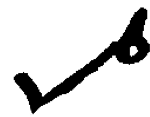
yule(source: Manual)
- full style:

